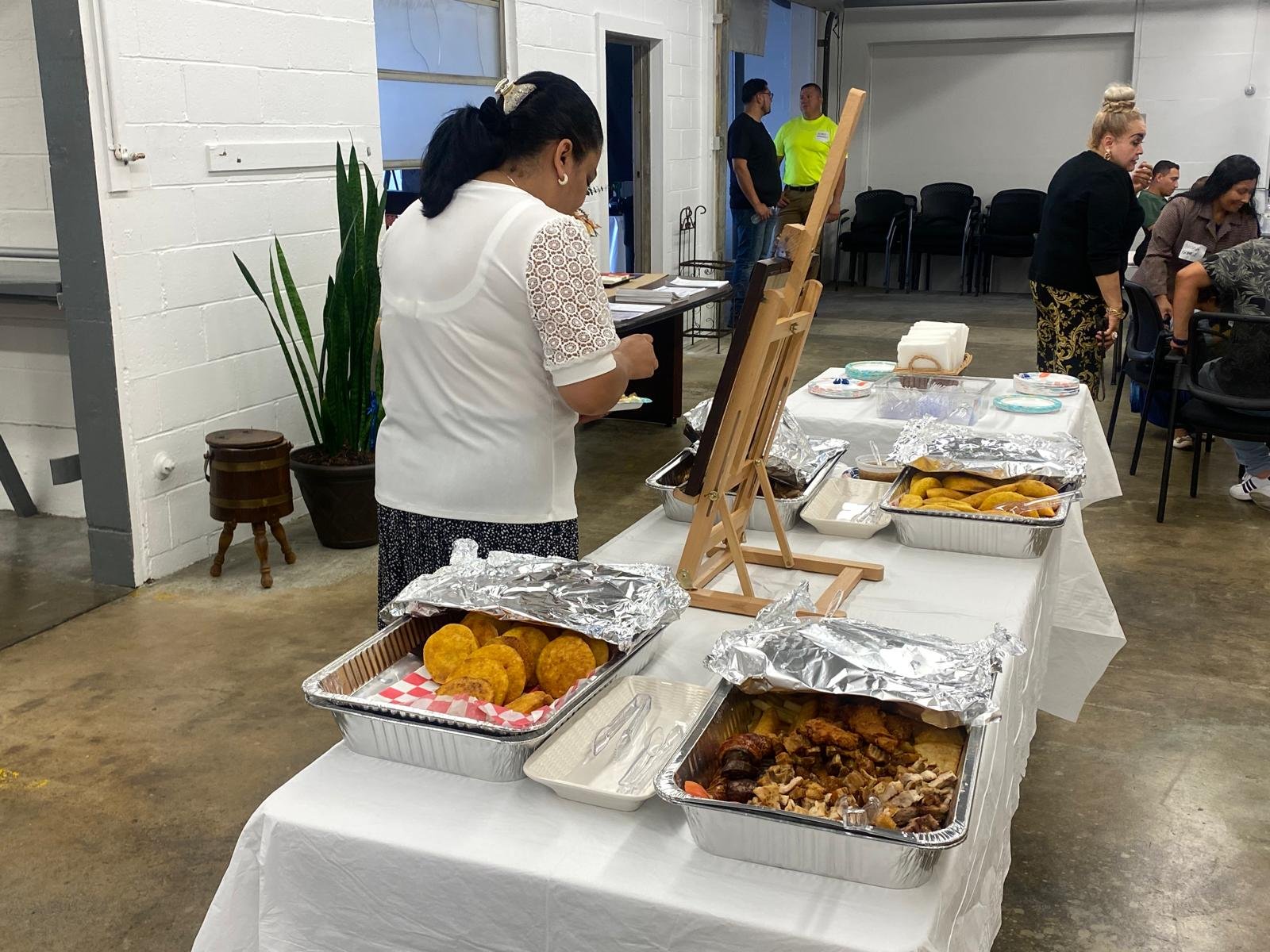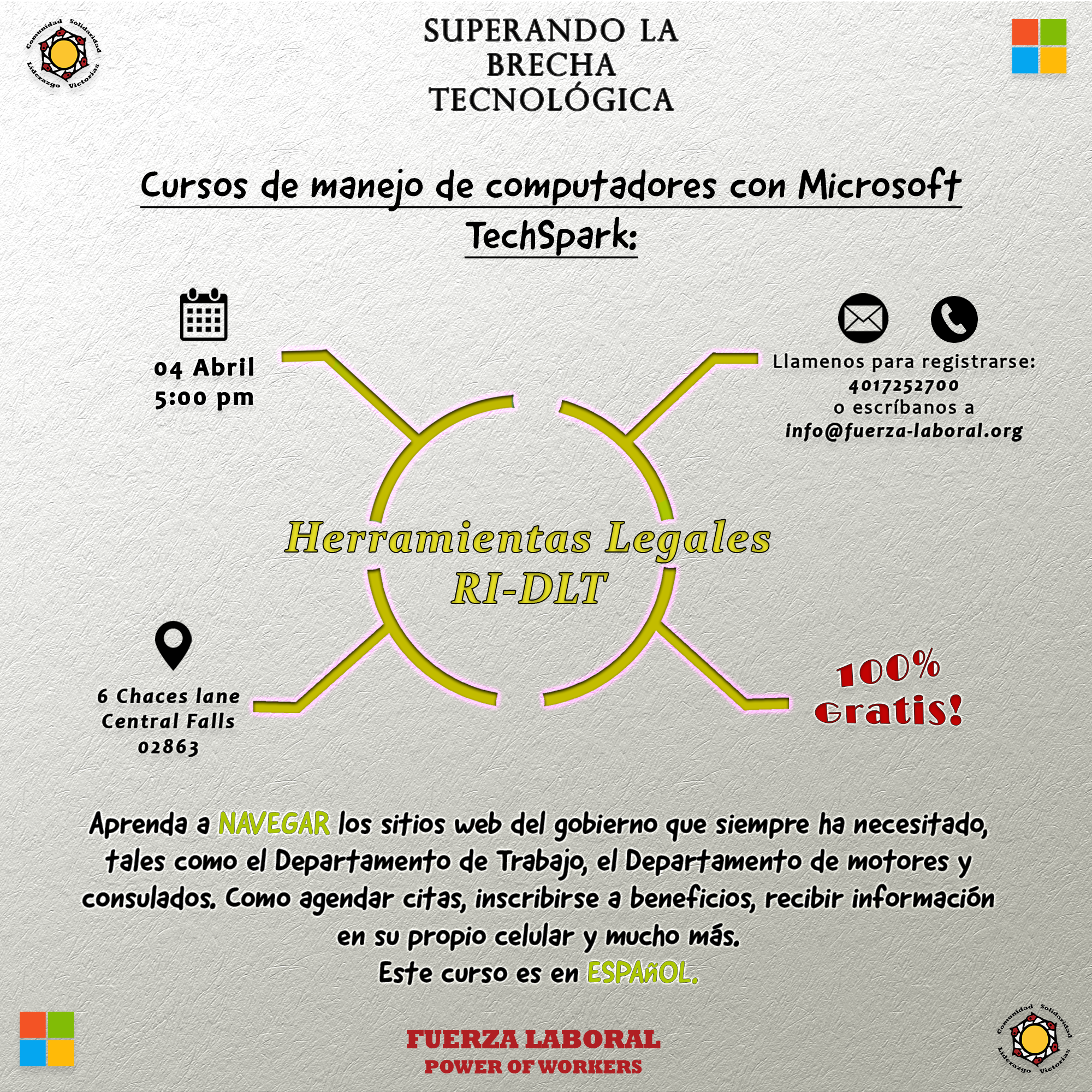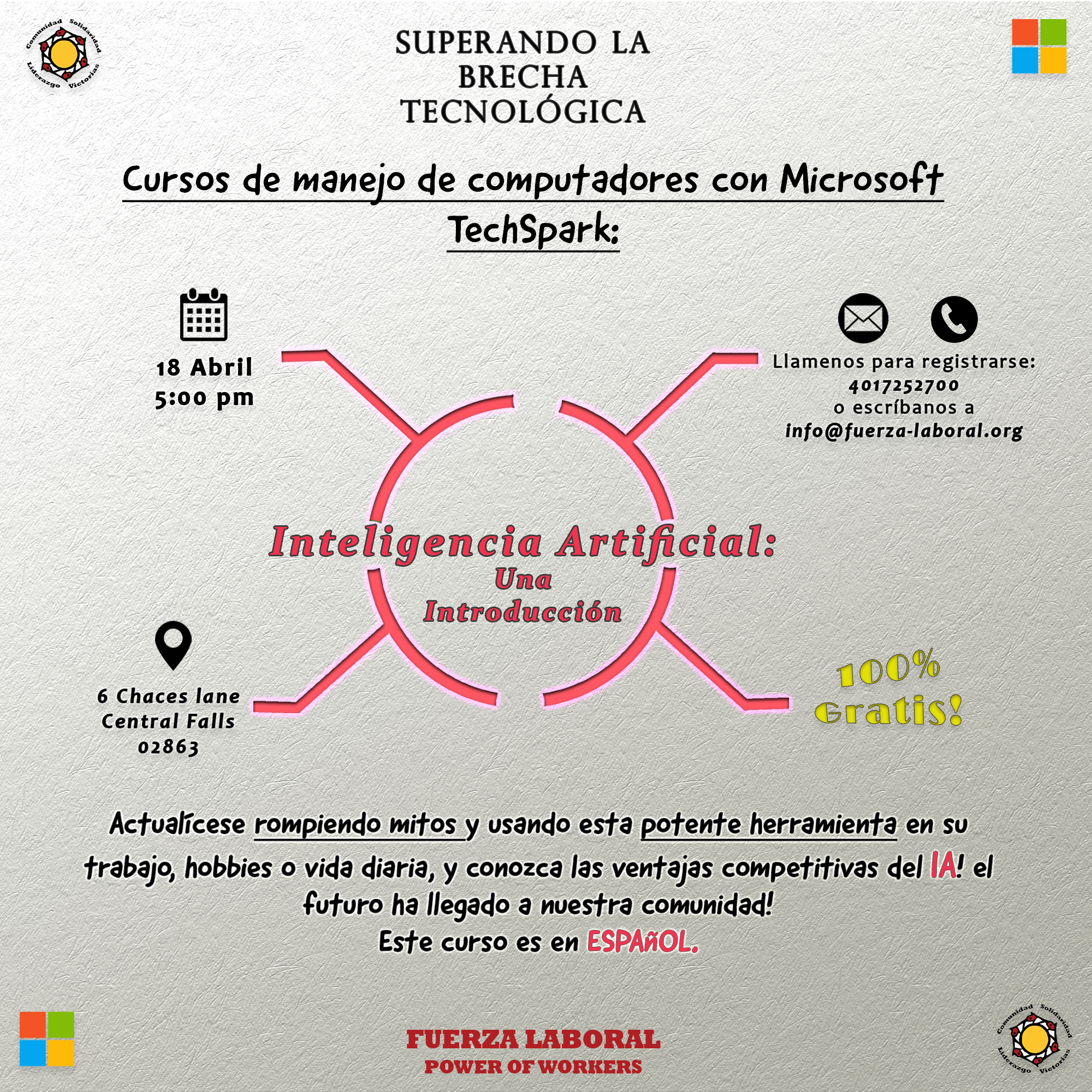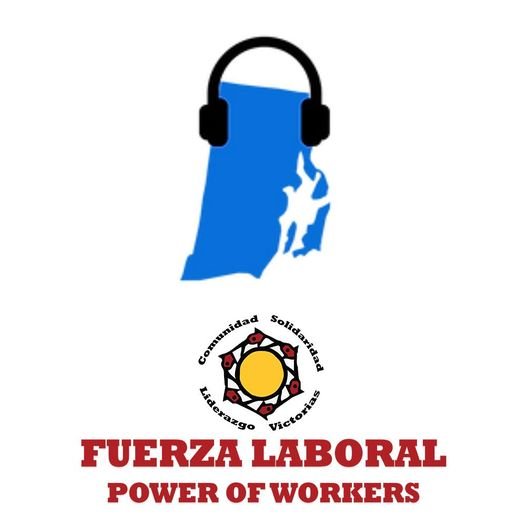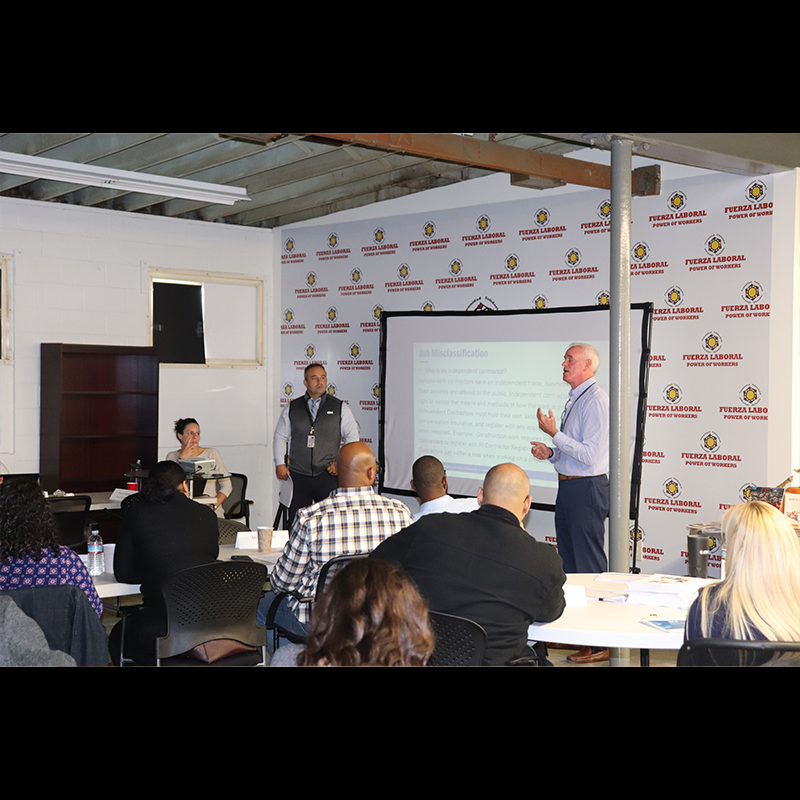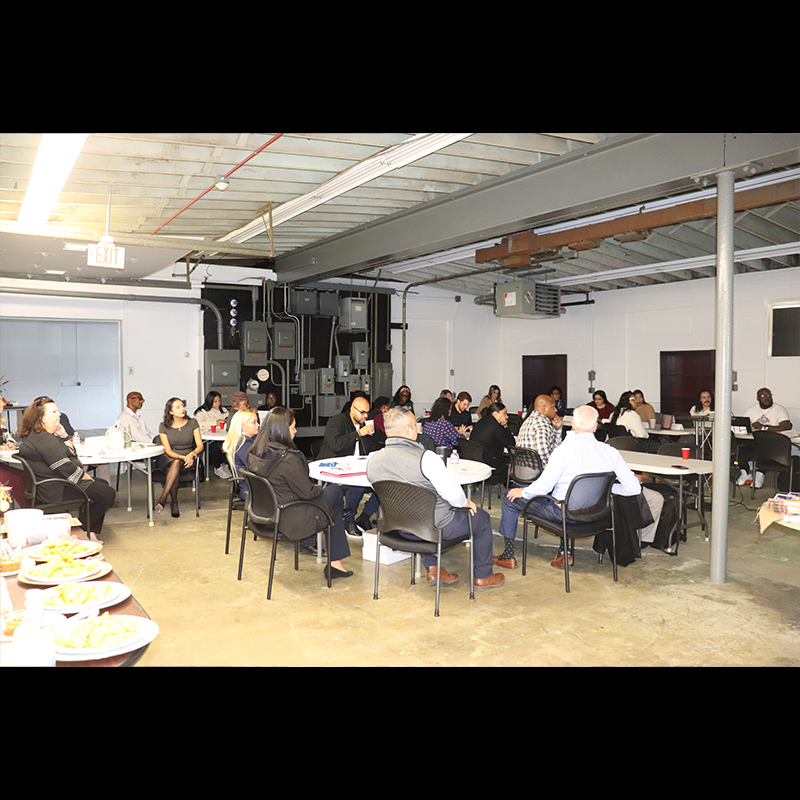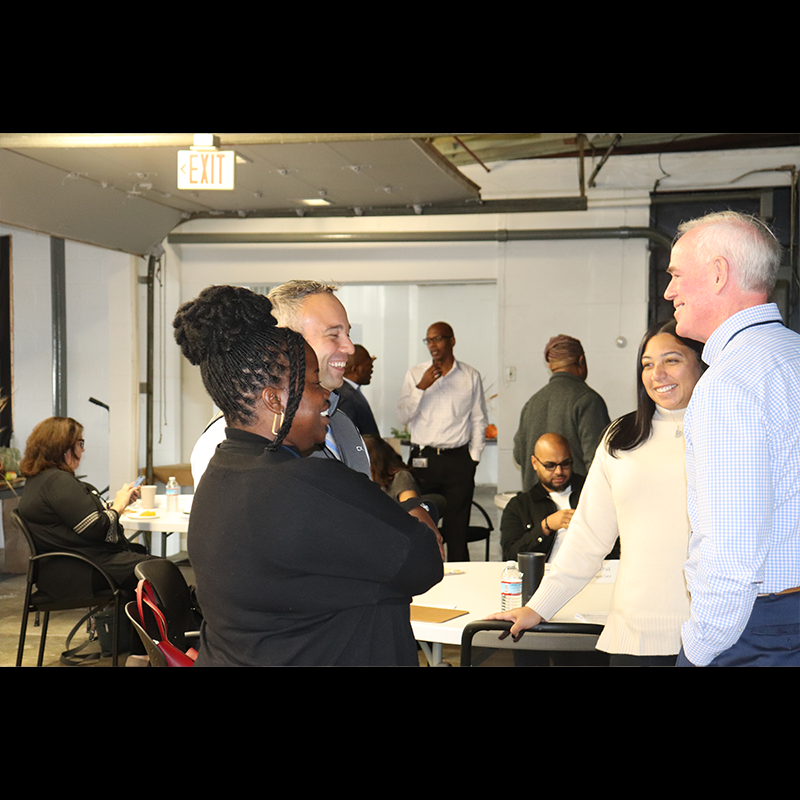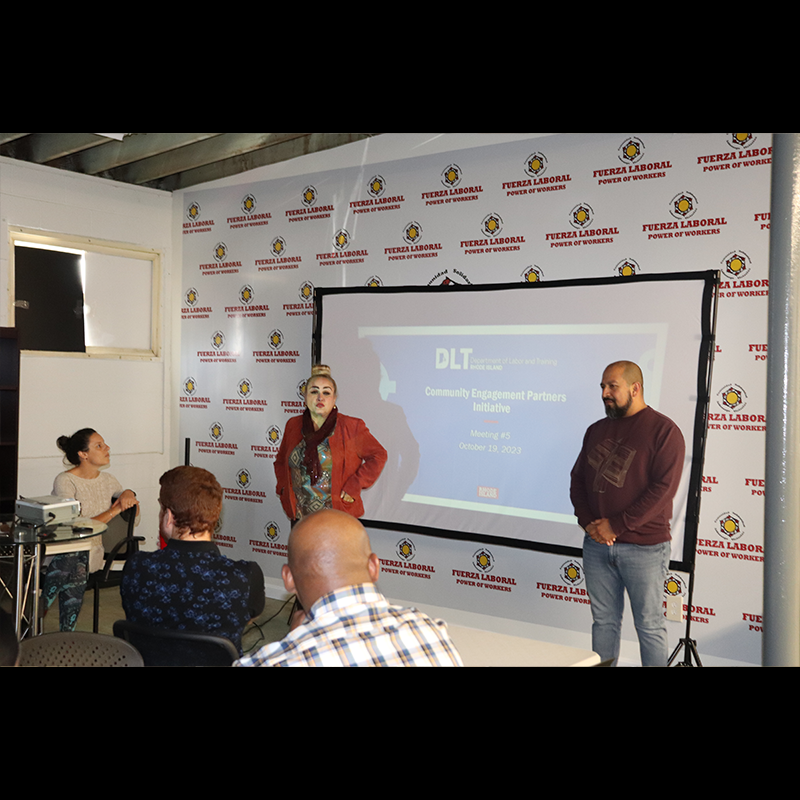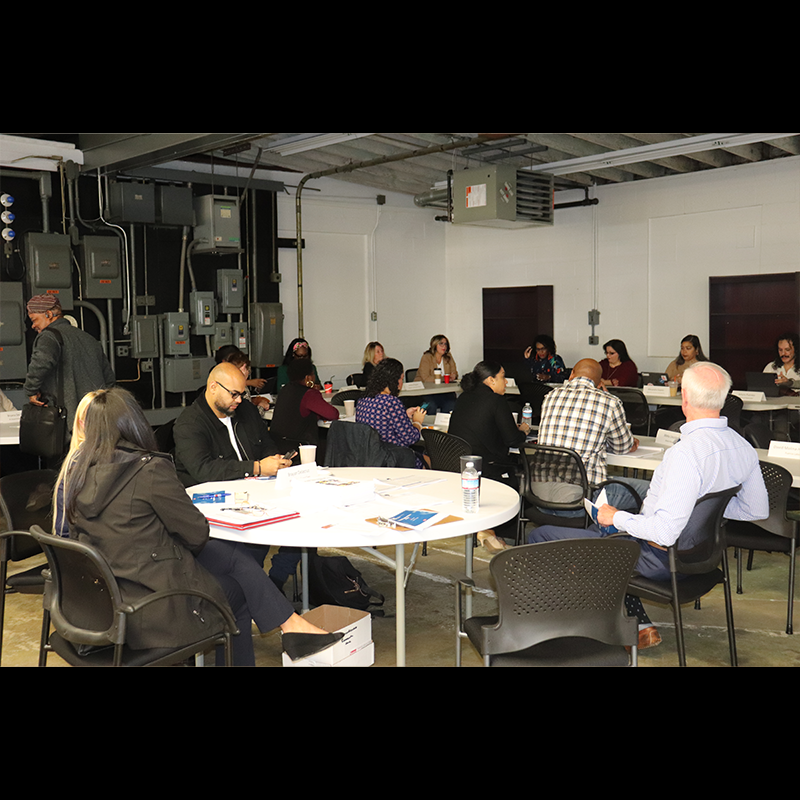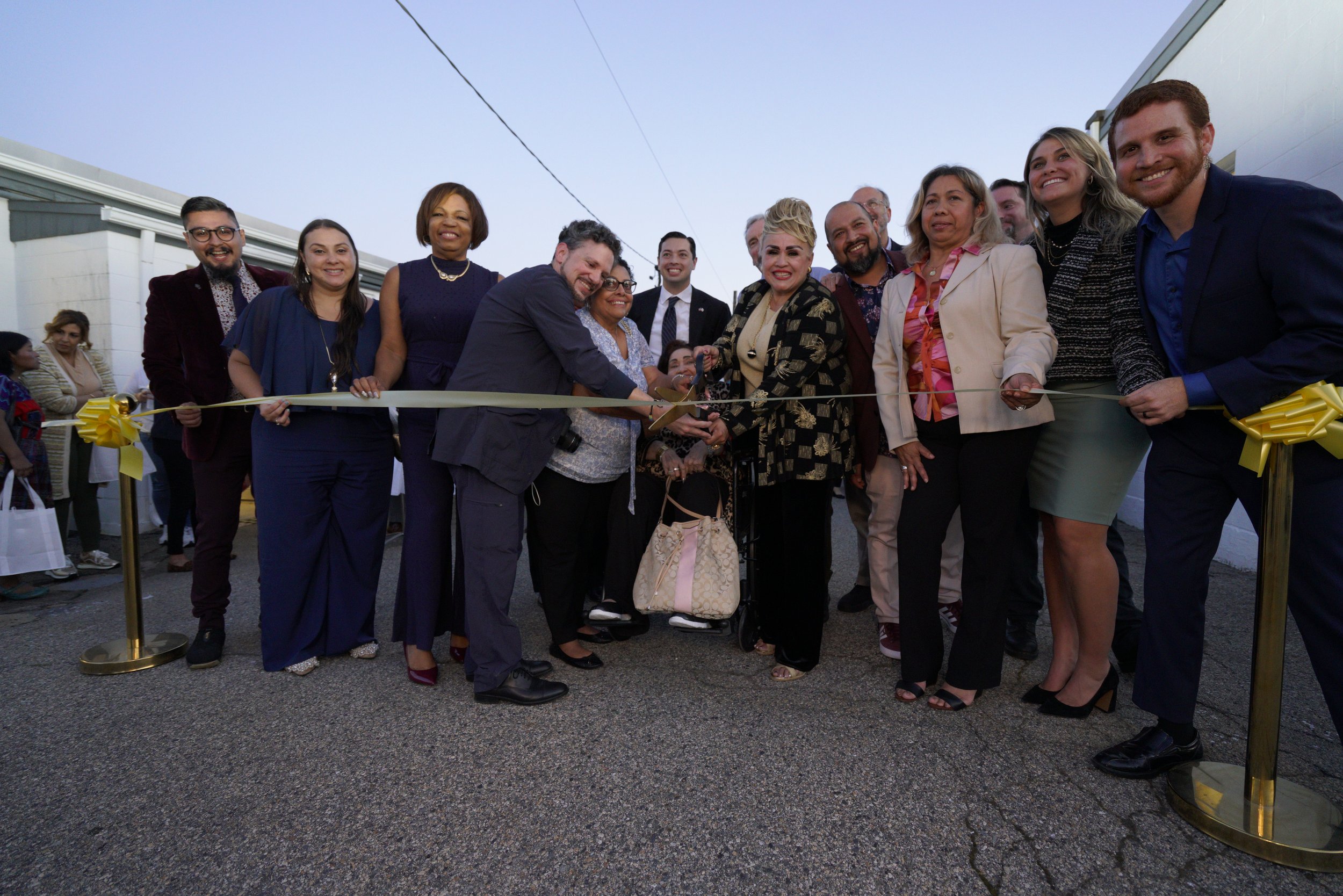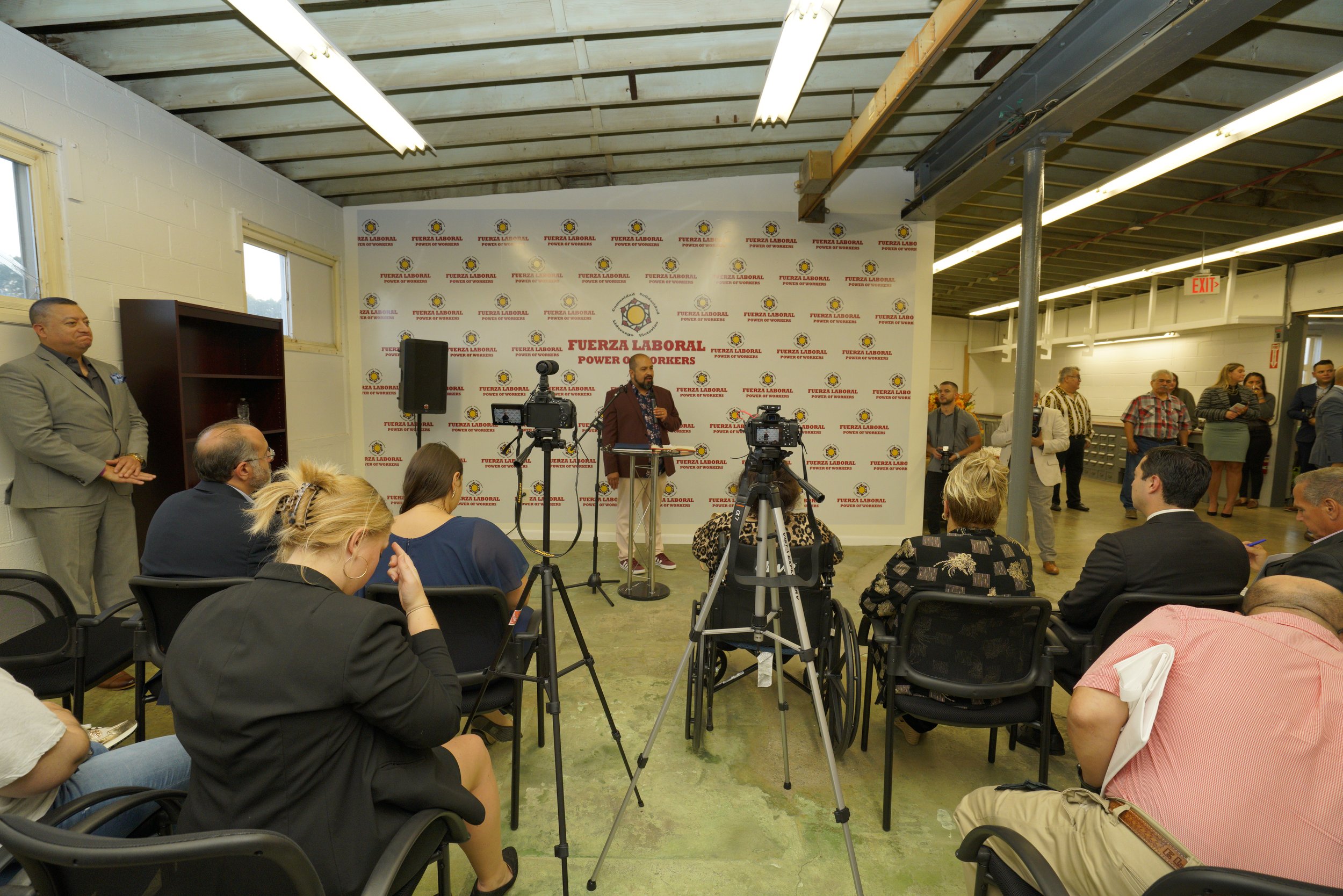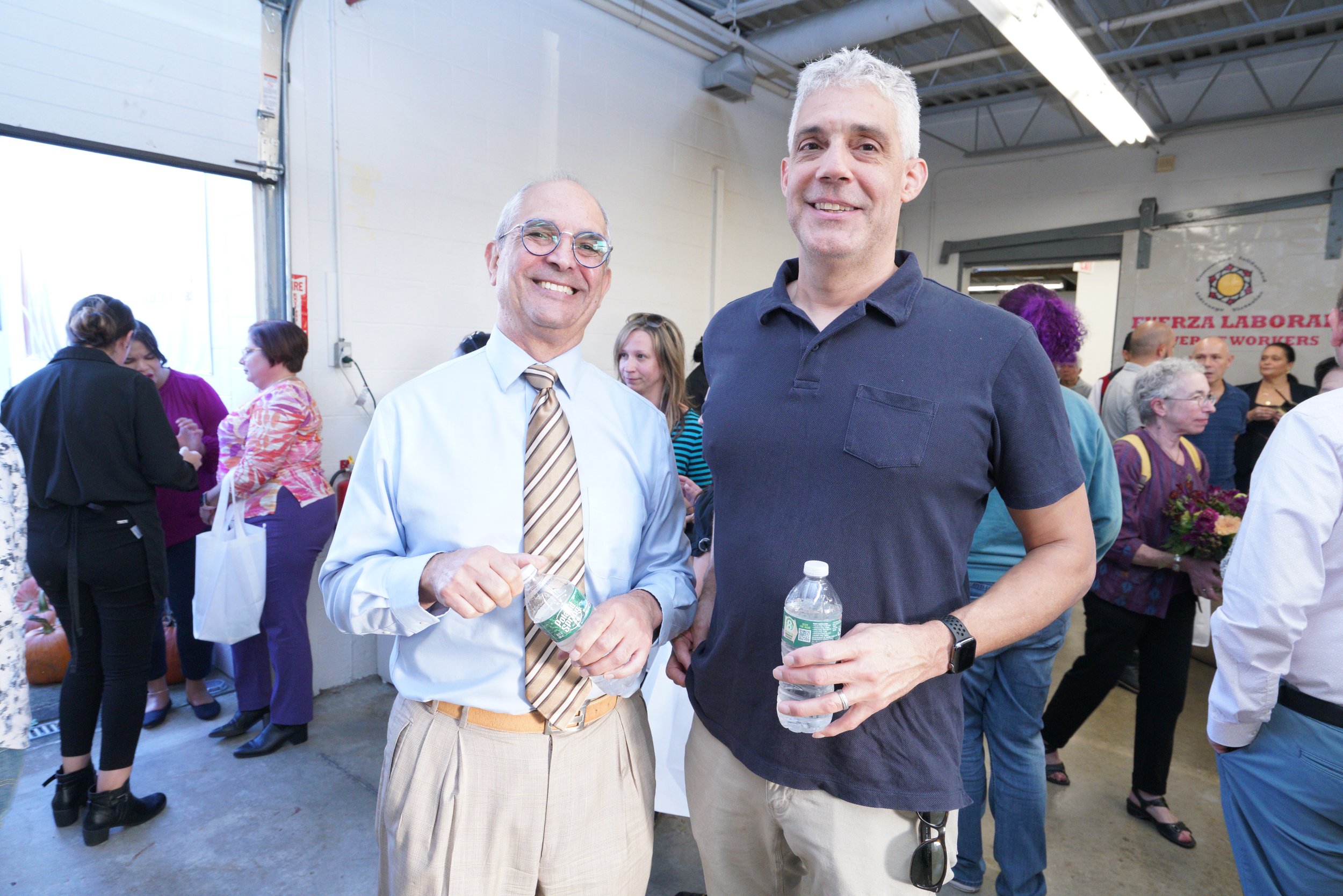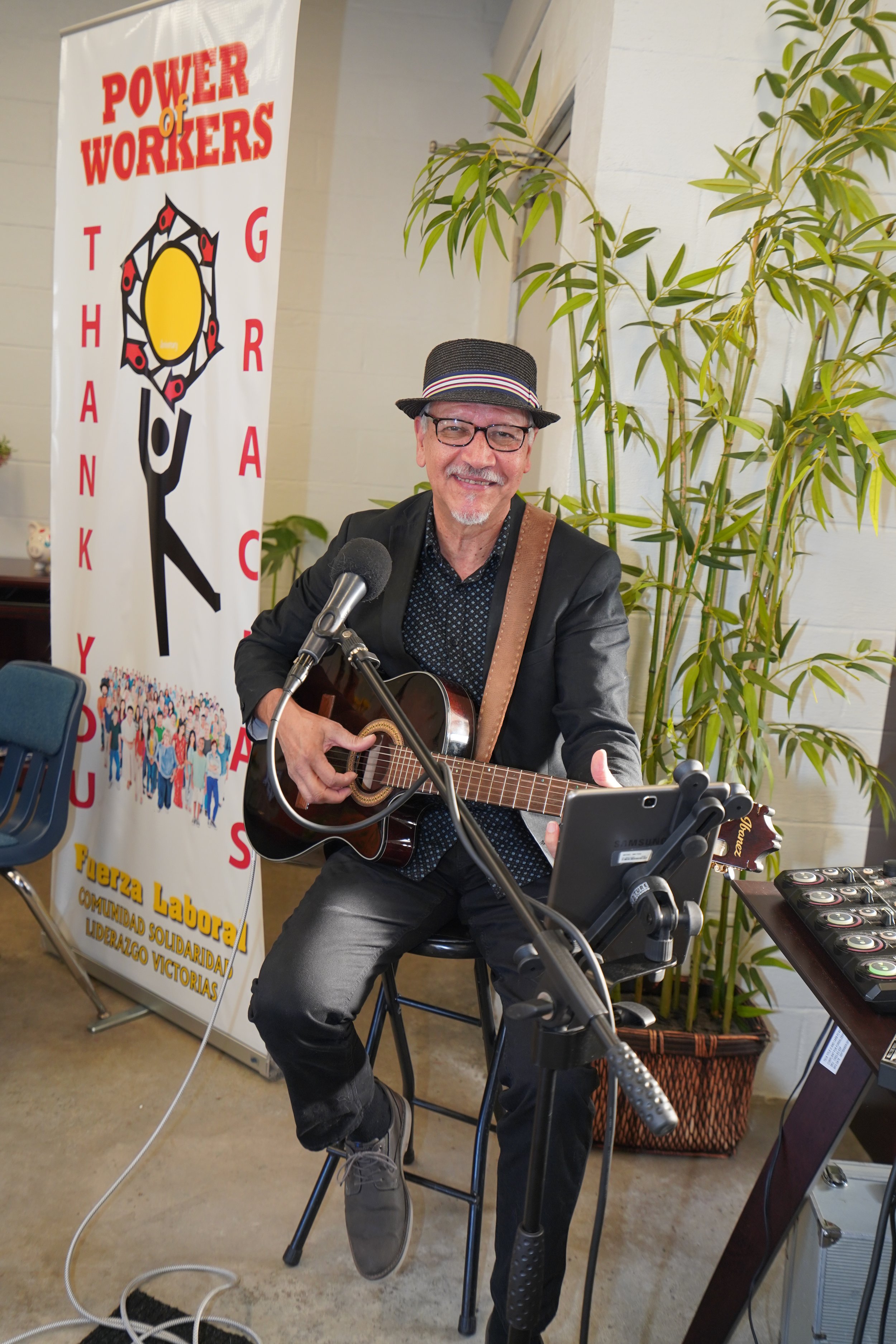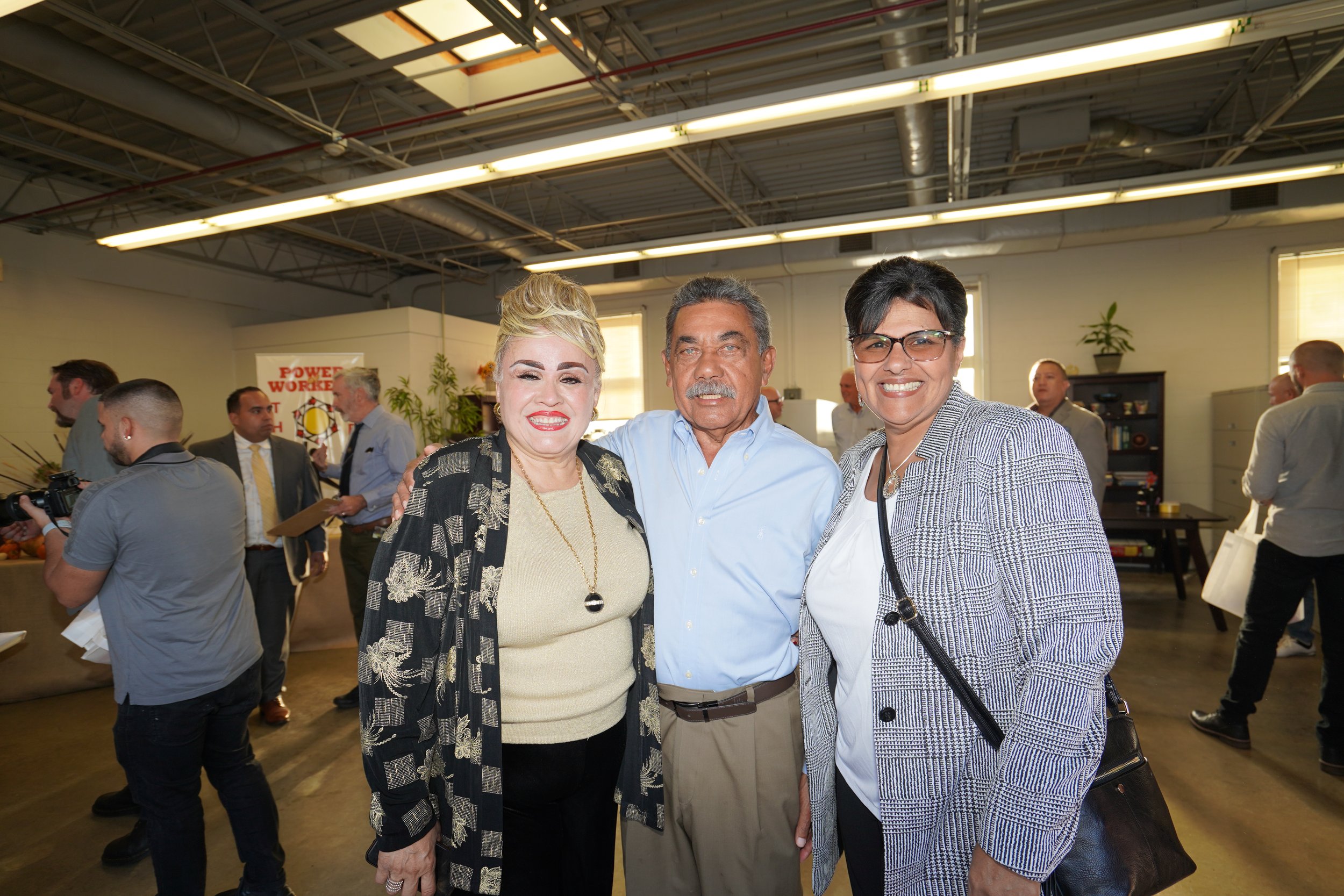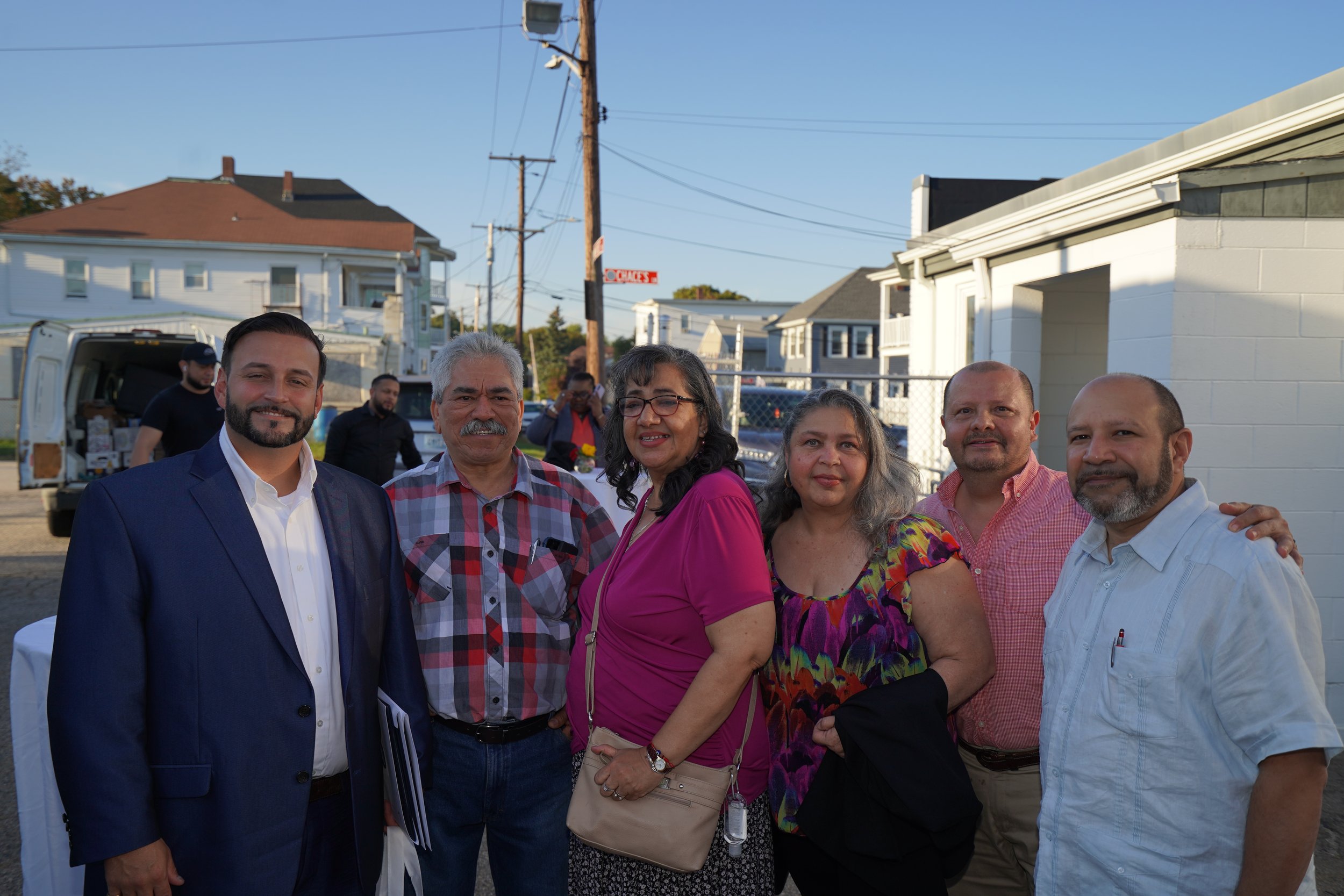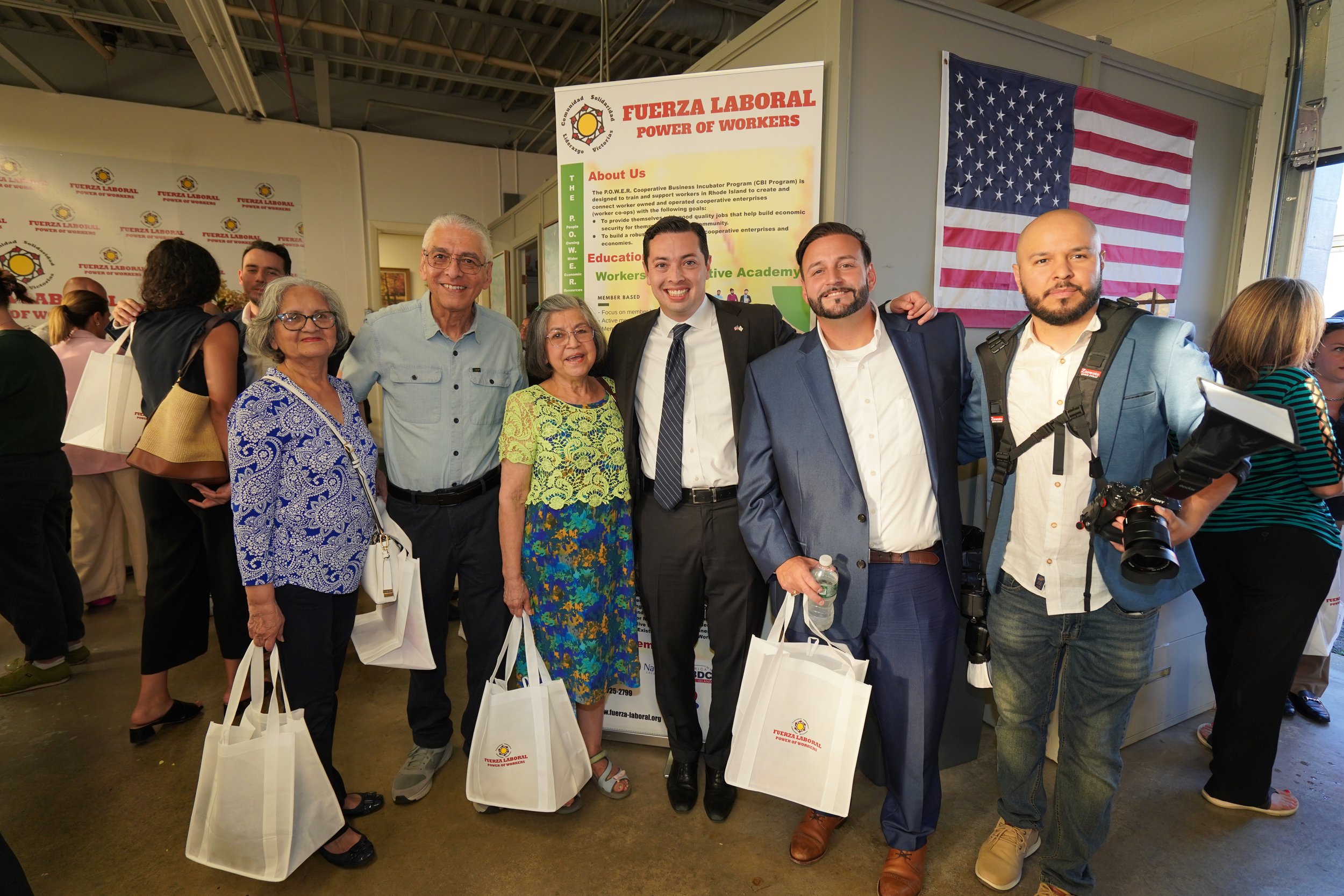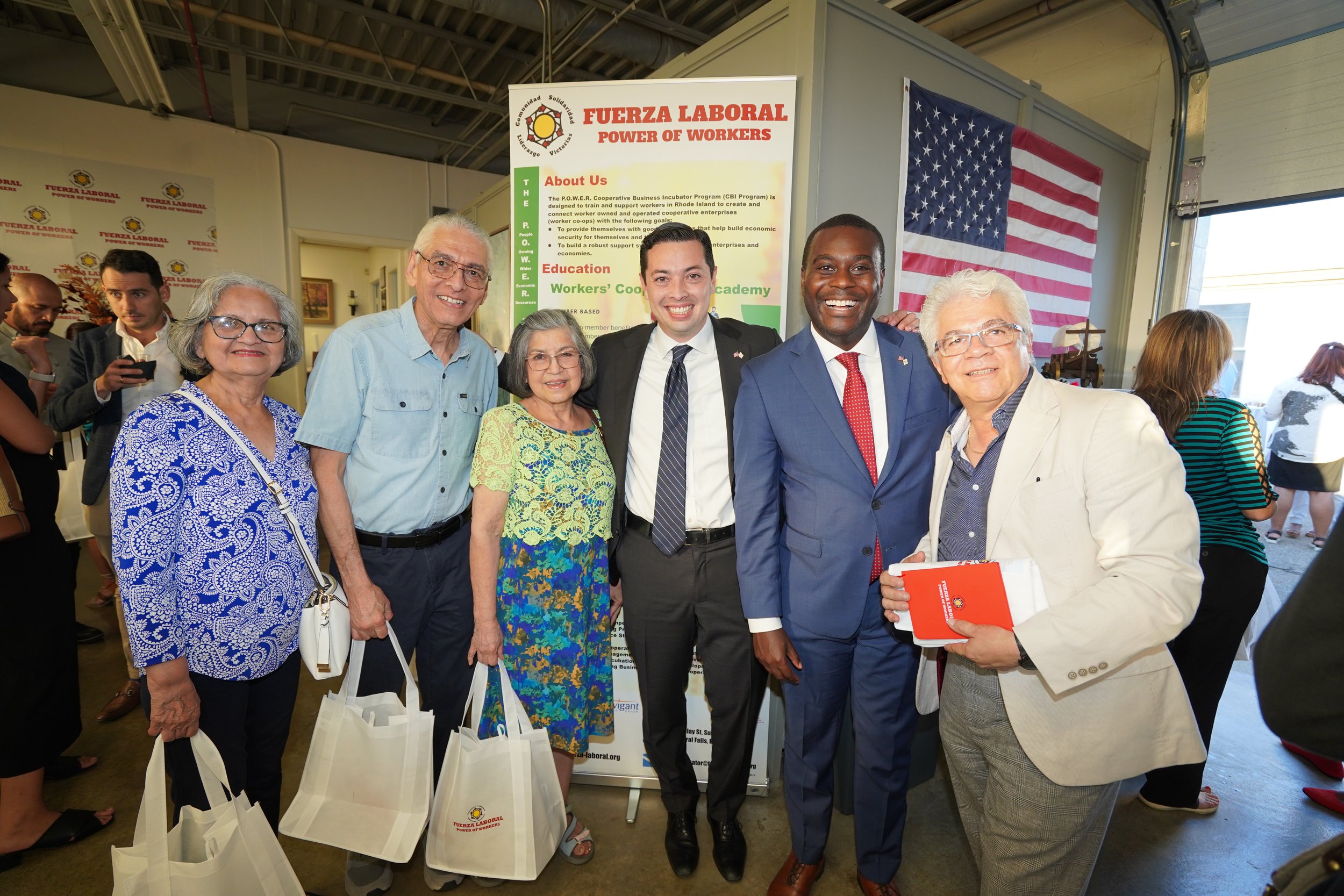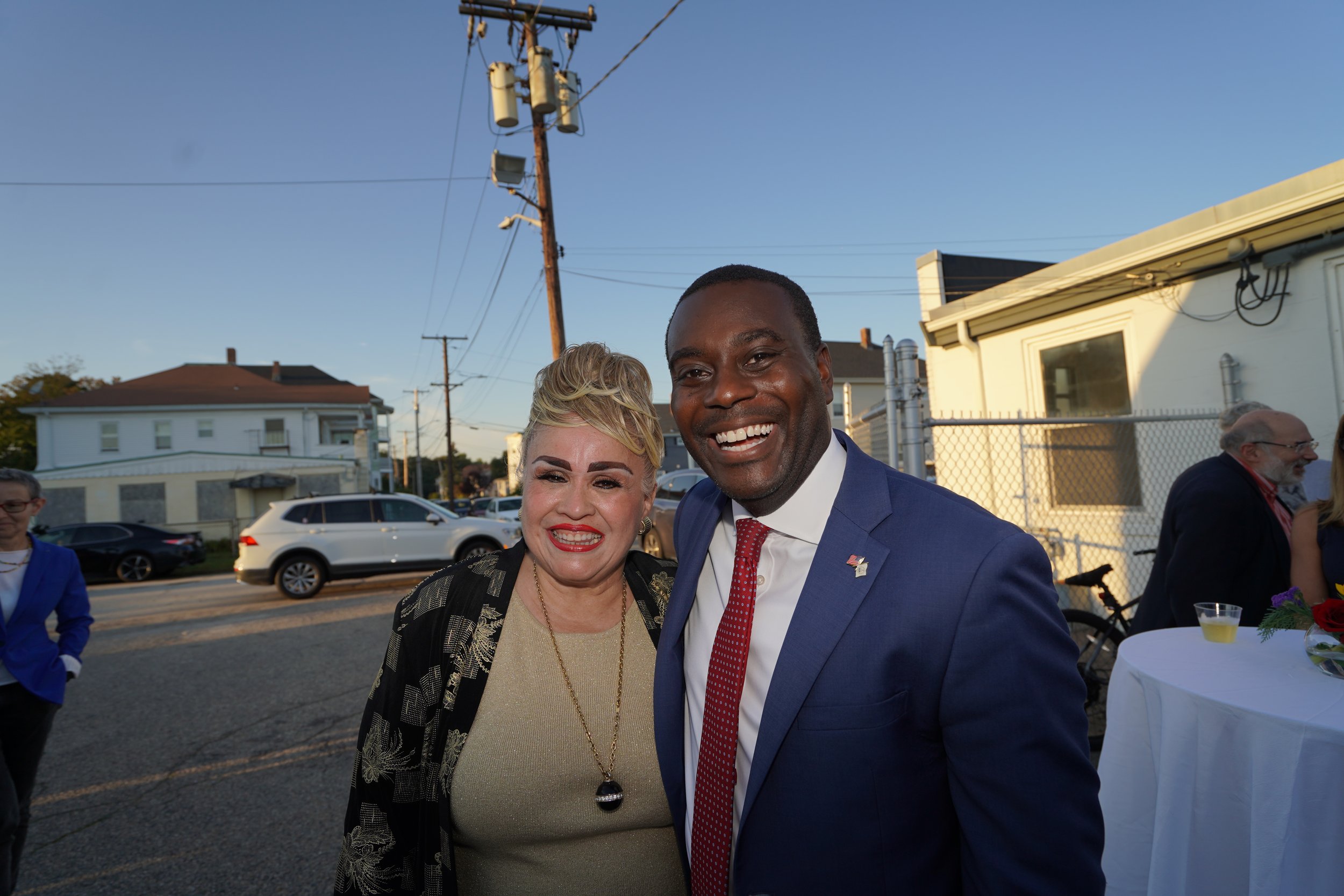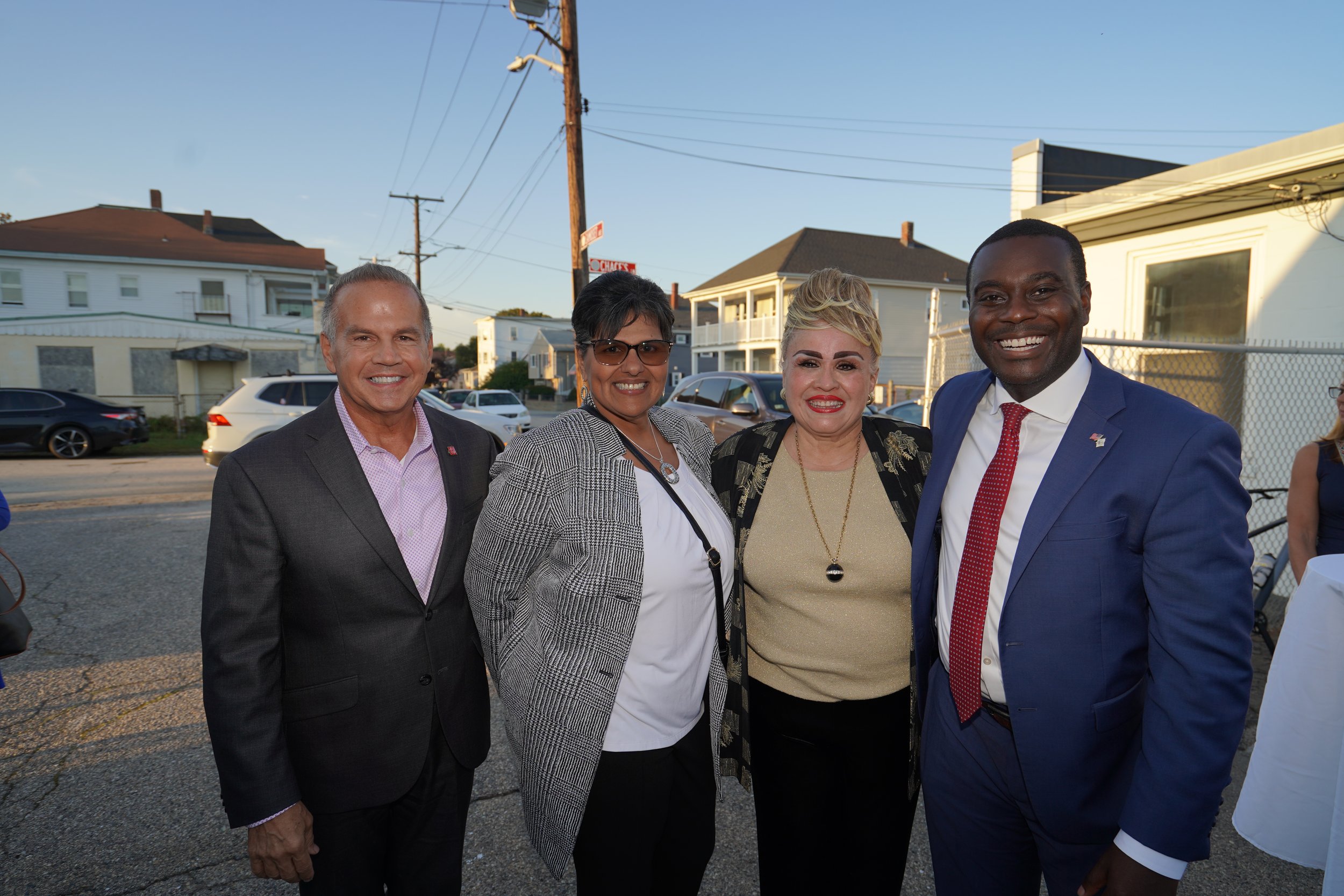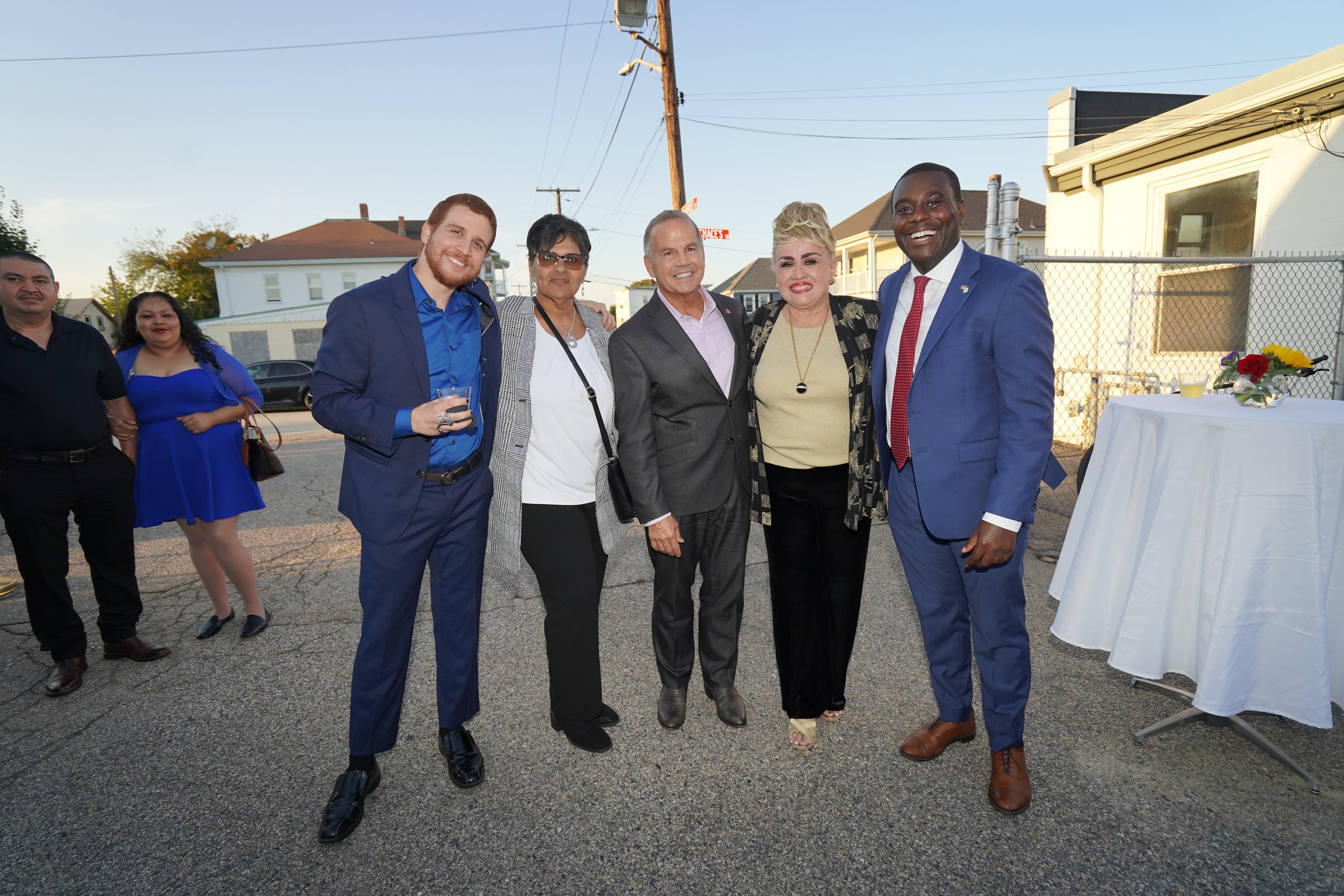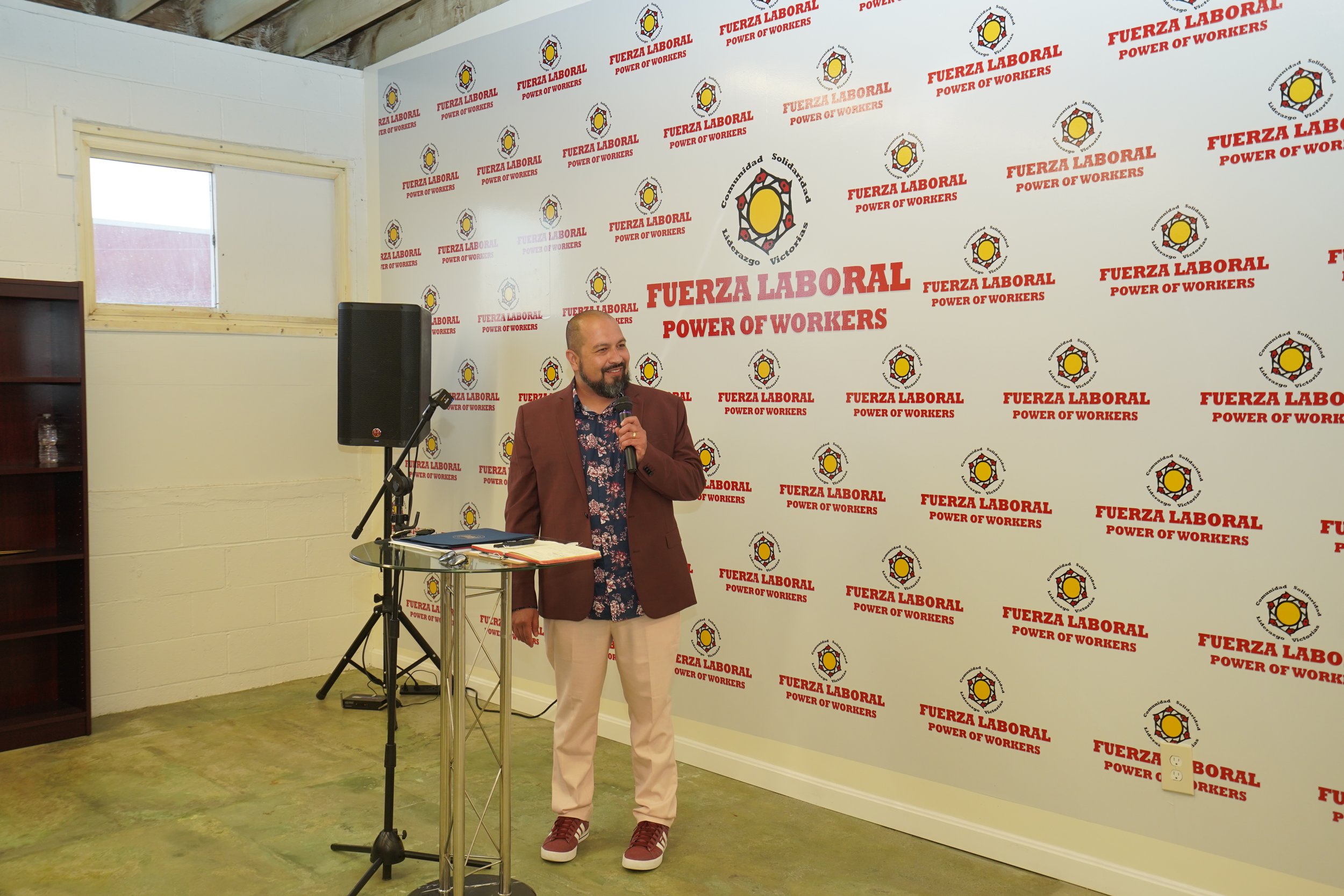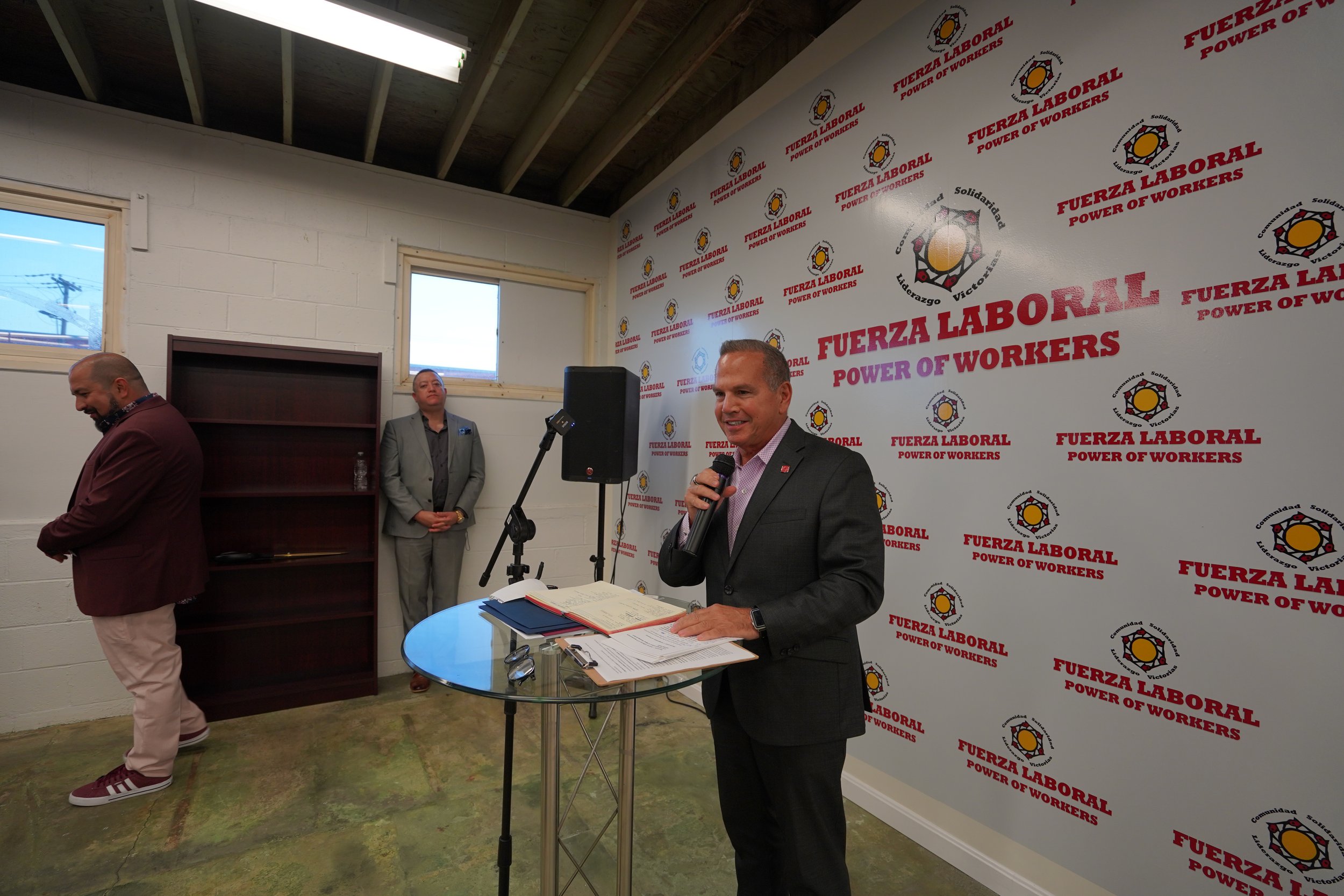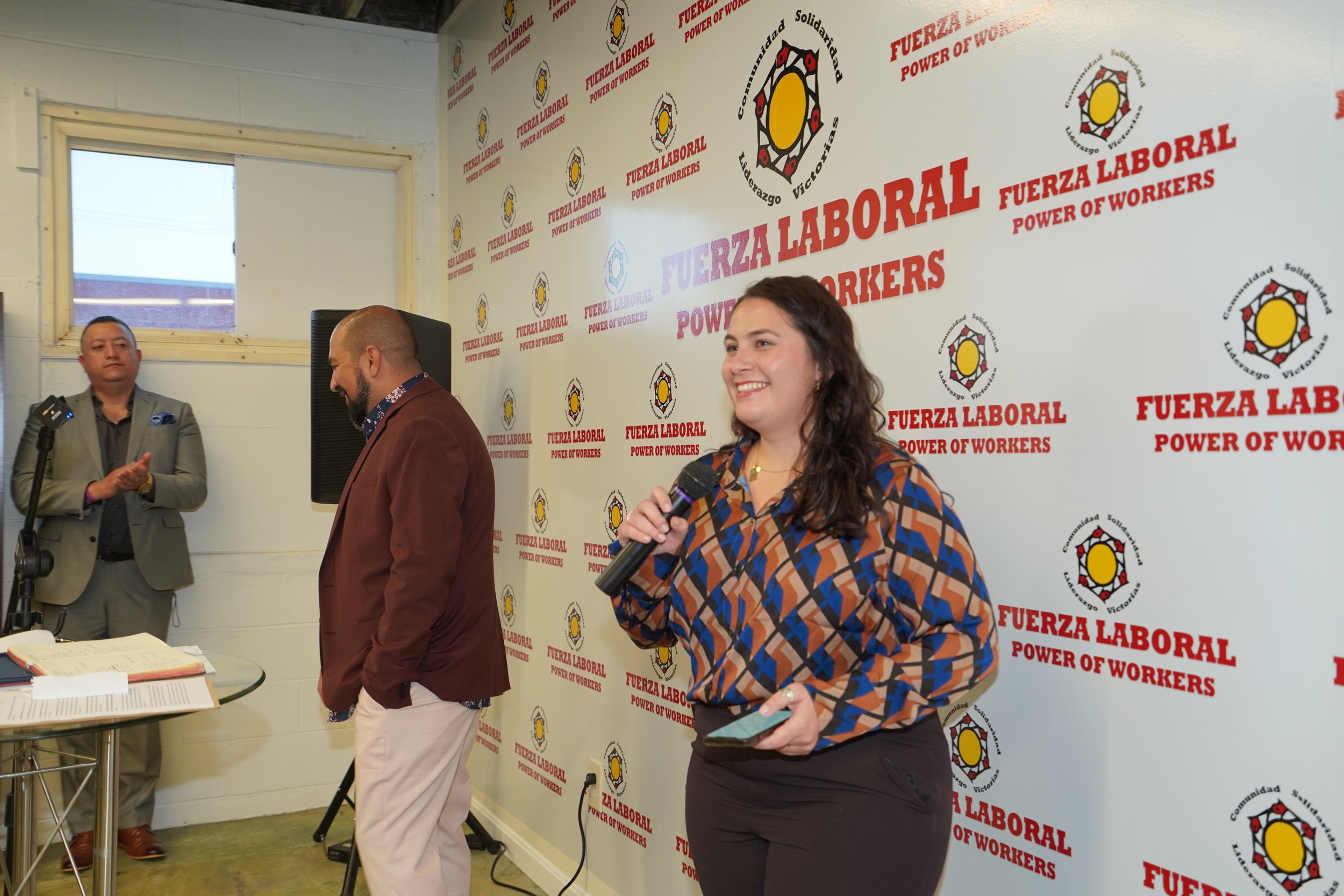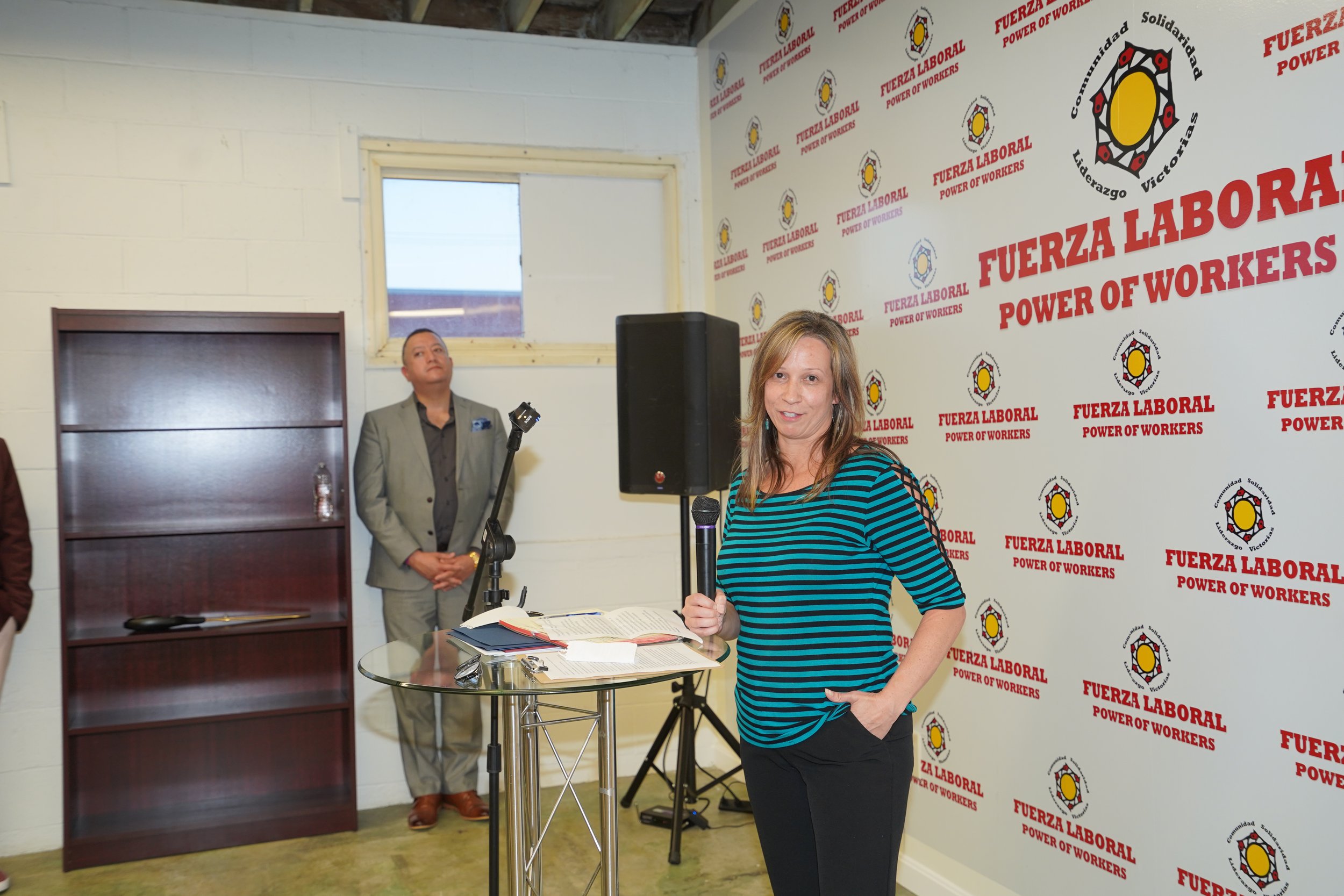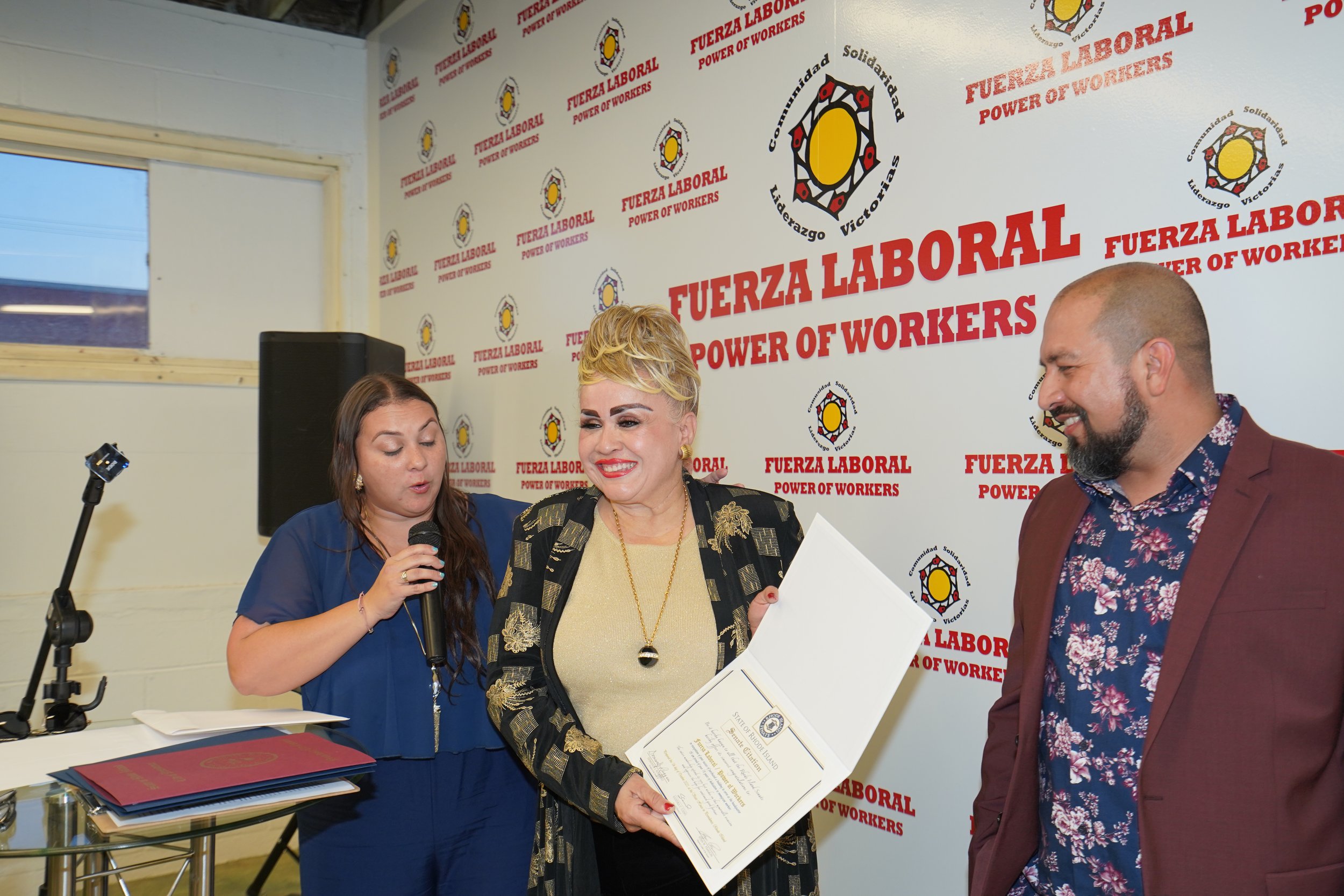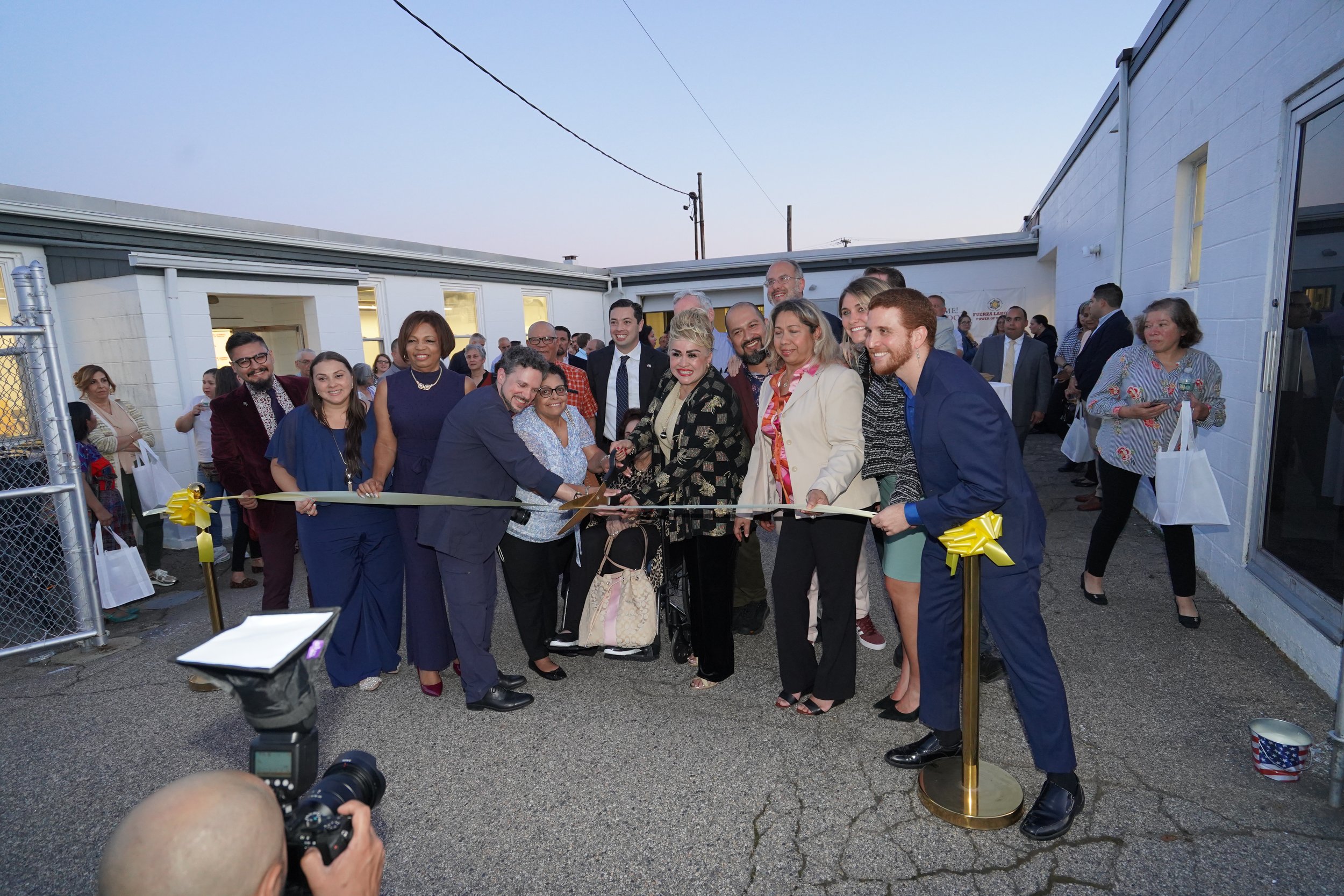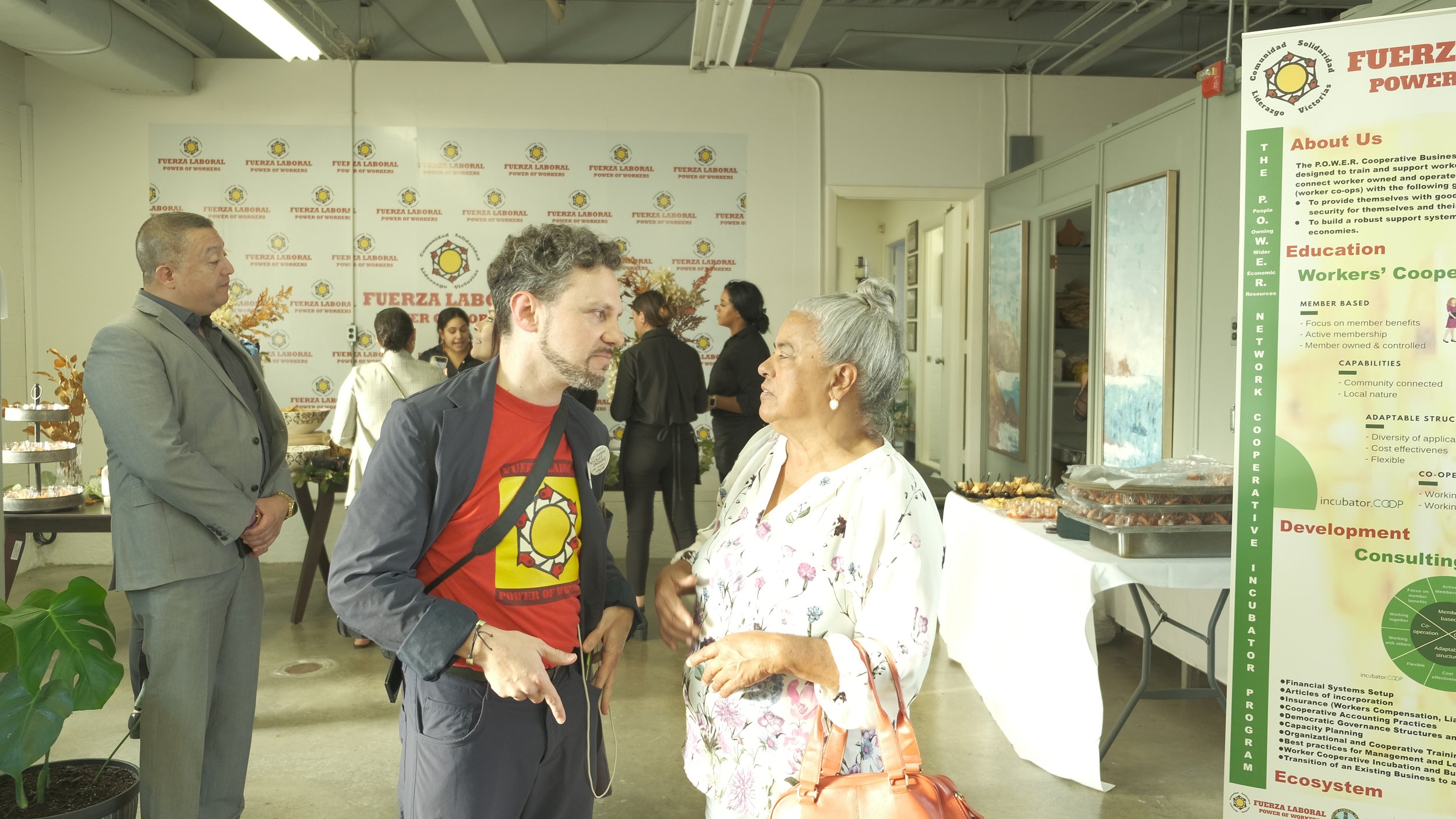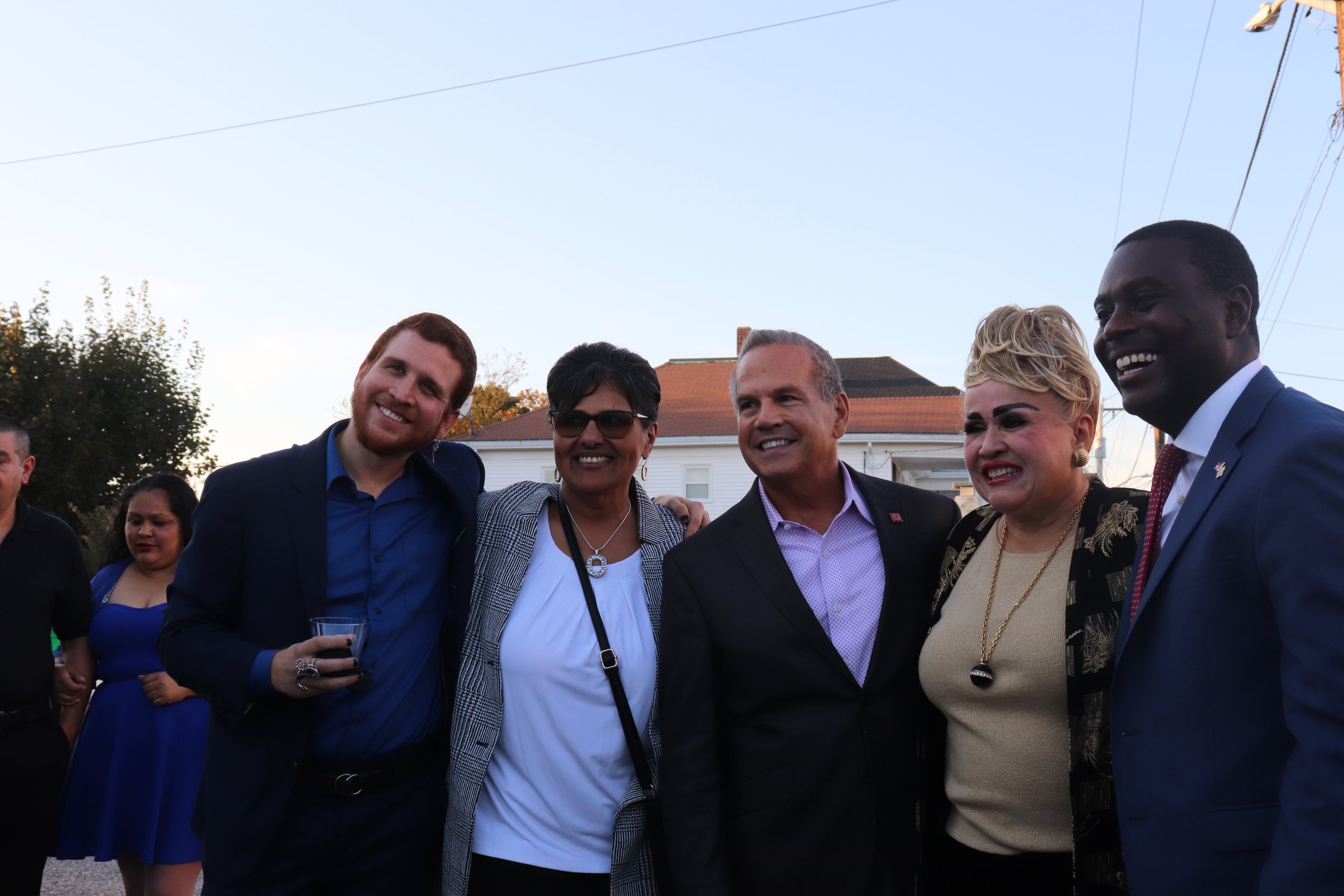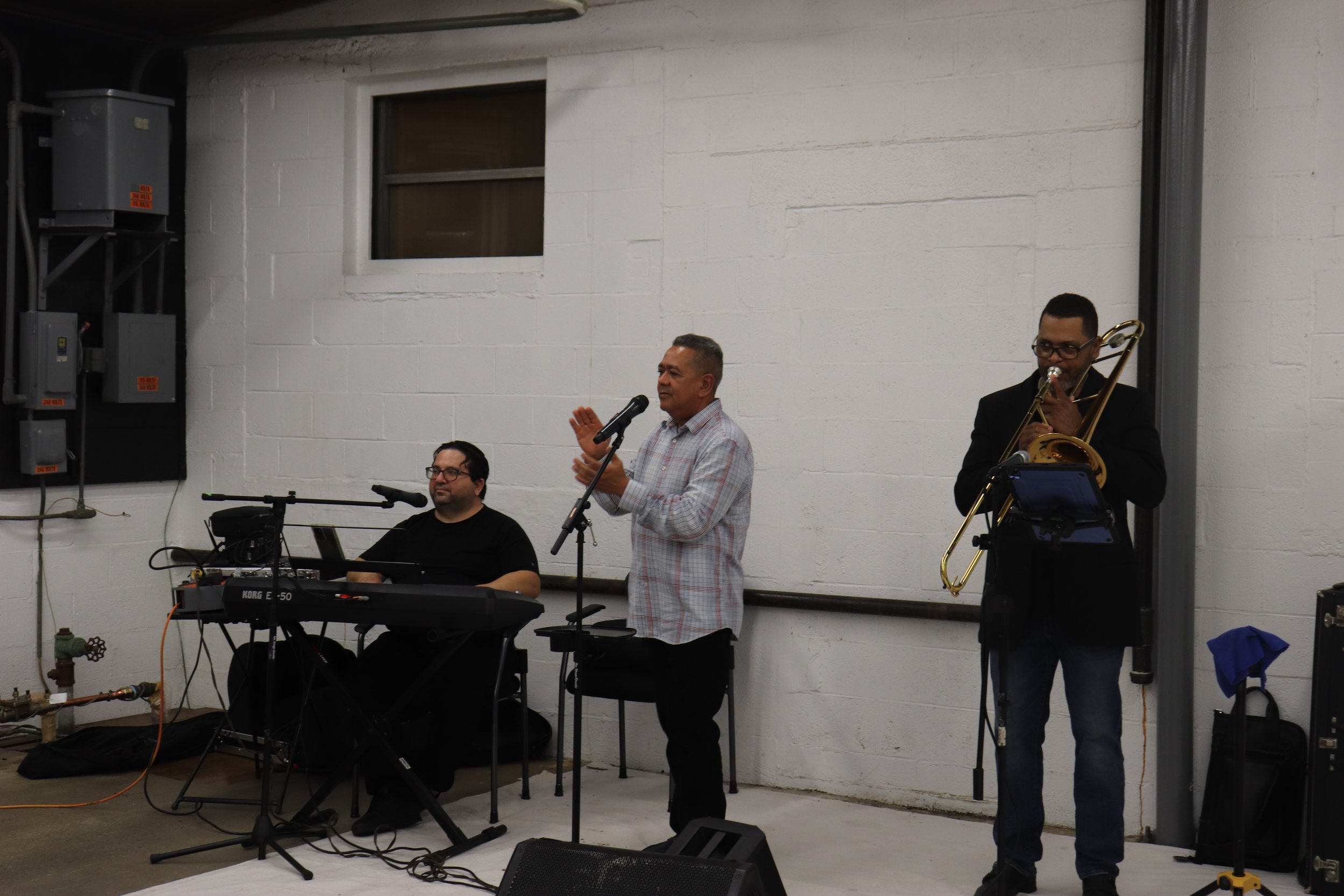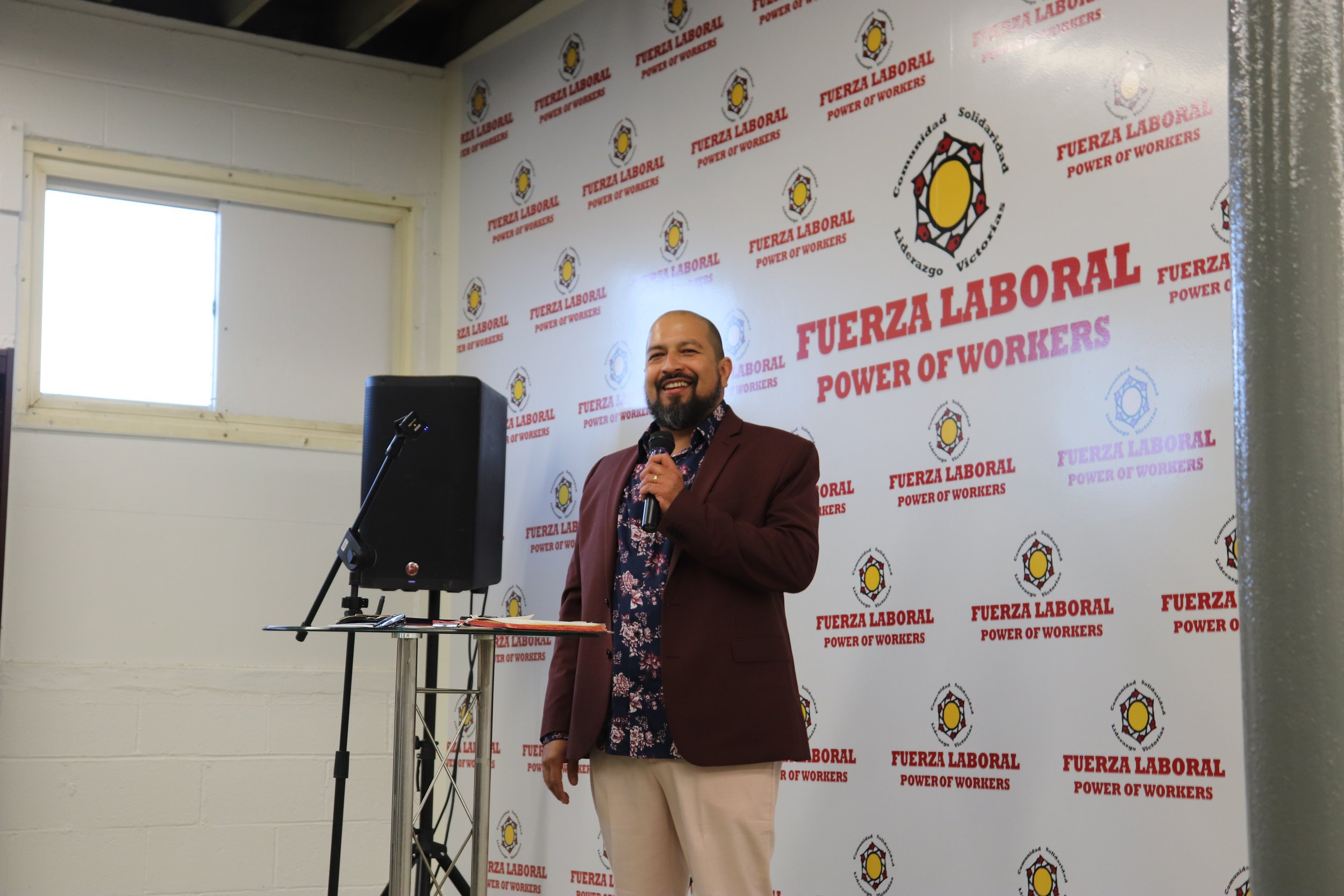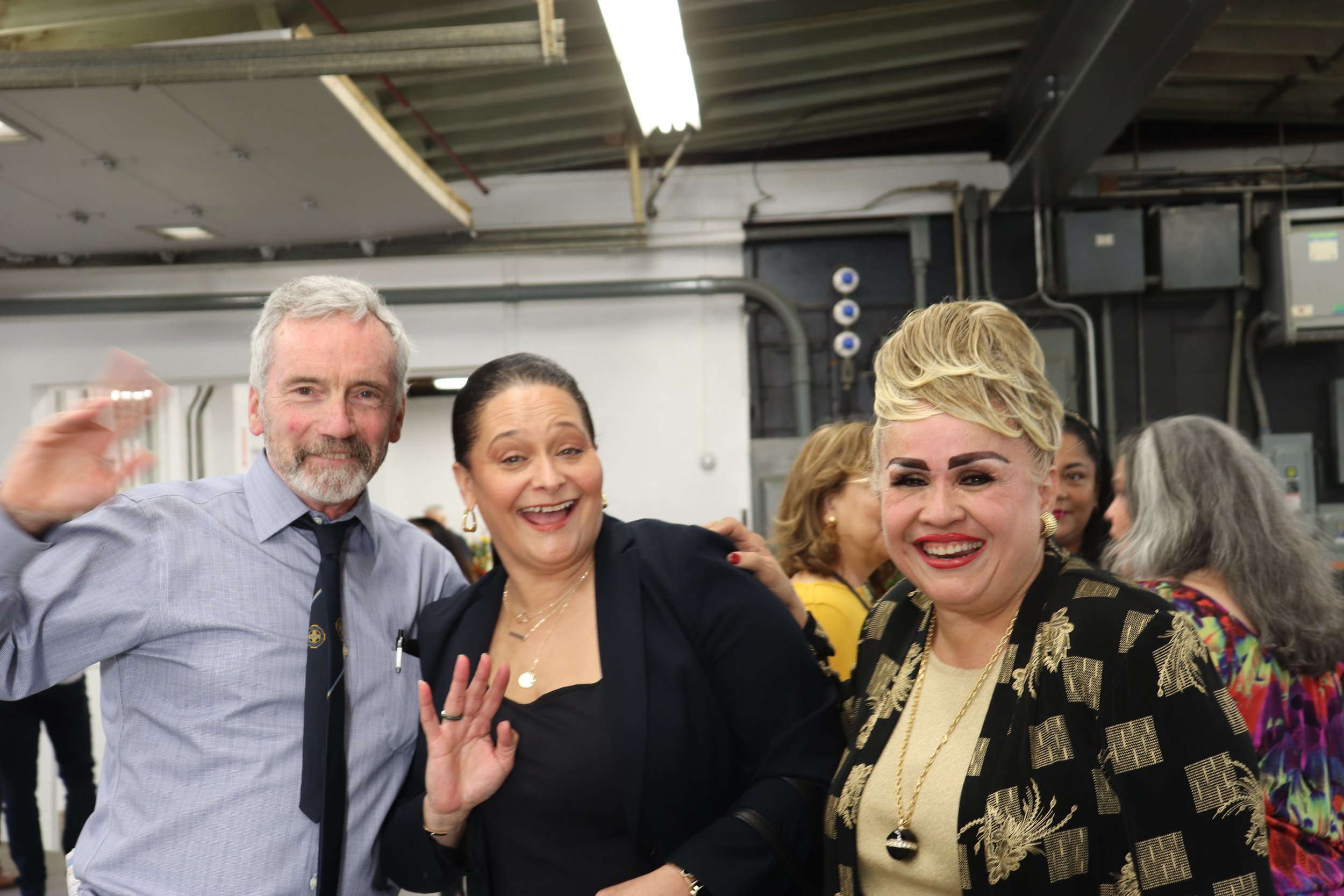Tuesday was a beautiful moment to interact with our community and engage in conversation towards our own safety and popular education, to uplift our members is our goal! Thank you Mujeres Positivas por co-producing this event with us!
Fuerza Laboral and RI AFL-CIO Highlighted by The Boston Globe
In August 30, 2024 for Labor Day, The Op-Ed in Boston Globe Rhode Map highlighted the work and particularities of Labor in our state in 2023 and 2024. Here is the full article:
This Labor Day, as leaders of the Rhode Island AFL-CIO, we are proud to say Rhode Island continues to make tremendous legislative progress on issues affecting union members and all workers. For example, it is now a felony for employers to engage in wage theft by failing to pay workers. Rhode Island is applying strong labor standards in the renewable energy and cannabis markets. We’ve passed common sense gun safety laws, committed to replacing all water pipes that contain lead, and expanded the amount of time workers can access paid time off. We’ve even made enhancements to public service workers’ retirement benefits. All these changes make Rhode Island a better place for working-class people.
Despite this progress, Rhode Island workers still face serious economic challenges. One challenge our members face is an ongoing teacher shortage. Through our affiliated worker education center, the Institute for Labor Studies and Research, we have partnered with Rhode Island College and several school departments in Rhode Island to create a teacher apprenticeship program. When fully implemented, this program will work to create pathways into the classroom for students interested in pursuing a career in teaching as well as for people currently working as teacher assistants. The program will also work to diversify the teaching workforce so it can become more reflective of the student body.
The health care marketplace is another major area of concern for working class Rhode Islanders. Health care is too expensive, and many health care jobs, once a road to the middle class, no longer offer competitive, family sustaining wages. As a result, health care employers are coping with too many job vacancies leading to negative patient outcomes and health care worker burnout. We know there are worker-centered solutions to these issues, so, along with key unions representing health care workers, we’ve partnered with the Hospital Association of Rhode Island to create a new non-profit organization. The Healthcare Workforce Education Center will work to direct workforce planning and development across the state and create not just good jobs but fulfilling careers.
Many working-class Rhode Islanders utilize RIPTA as their main source of transportation to and from work and school. When RIPTA was facing a driver shortage, the labor movement stepped up and began looking for solutions. With the help of many organizations, including the bus operator’s union, the Amalgamated Transit Union Local 618, the Institute for Labor Studies and Research, and RIPTA, we’ve collectively created a new bus operator test preparation program, that, along with improved wages and benefits, is attracting more drivers into service and forestalling the need for service cuts.
There are several things we suggest Rhode Island can do to continue to support working-class people. First, we must continue to raise the minimum wage. This January is the last scheduled increase in the minimum wage, so we are calling on Governor Daniel McKee and the legislature to continue to make forward progress on the minimum wage in this upcoming session.
We must also continue to make progress on our transition to a carbon-free economy. Rhode Island has an opportunity to be the hub of the emerging offshore wind industry for the entire Atlantic seaboard. We call on our state’s leadership to continue to take a worker-centered approach to offshore wind development. Rhode Island is part of an effort with Massachusetts and Connecticut to deploy 6 gigawatts of offshore wind. Let’s be bold and say we should deploy 60 gigawatts by 2050 and use union labor to do it.
While it continues to be important to attract new businesses to the state, we must also work to improve the jobs Rhode Islanders currently hold The most successful way to do that is to expand the number of workers who have access to union membership. The United States Treasury Department recently concluded unions raise the wages of their members by 10 to 15 percent while contributing to robust general economic growth and resilience. Therefore, we are calling on state leaders to extend labor peace agreements found in the renewable energy and cannabis sectors of the economy into other areas, especially in the health care and hospitality sectors.
A strong labor movement is critical to a strong Rhode Island economy. For many years, Rhode Island tried to strengthen the economy focusing on top-down solutions. It didn’t work. Now that we’ve turned the corner on that way of thinking, we need to continue to look for solutions with positive impacts that start with empowering workers and drive forward from there.
George Nee is the president, and Patrick Crowley the secretary-treasurer, of the Rhode Island AFL-CIO.
Federal Reserve Bank of Boston President meets with Fuerza!
Federal Reserve Bank of Boston President Susan Collins got a glimpse of the economic realities in Rhode Island during a visit to the state last Wednesday. Newport was the final stop in a day that began in Cranston and Providence, and featured discussions with leaders of statewide businesses and nonprofits.
Federal Reserve Bank of Boston heard about successes and challenges of the local economy among them Fuerza Laboral, represented by our executive director Heiny Maldonado!
Read about it here: From Providence to Newport, Collins gets a look at Rhode Island's economic realities - Federal Reserve Bank of Boston (bostonfed.org)
Construction Workers Board! A Conversation
"We want to replicate a cooperative model of worker-owners and employees and continue to strengthen the business models of construction workers while fighting labor injustice at the root."
Construction Workers Board! Worker-Owned Cooperatives
on Thursday July 25, we invited 21 construction workers to our headquarters! Where we shared the project of a worker-owned Cooperative that is competitive, innovative and fair, and that is formed from people of our community (P.O.C., women and low-income immigrants). Based on the success and experiences from last year, we want to replicate this model and keep strengthening construction workers business models while fighting labor injustice from the root! This is a great BEGGINING to labor justice, and there is still much work to do!
Fuerza visits "12 Informa"
We were invited to WPRI's 12 Informa where our Communications Director David Molina-Hernandez shared our mission in ending labor injustice and our innovative vision in cooperative businesses with Delia Rodriguez-Masjoan.
See the full segment here: https://www.wpri.com/.../fuerza-laboral-te-invita-a.../
Overcoming the Technology Gap
“People with digital knowledge, understanding of their basic labor rights and united in worker-owners cooperatives will force the unjust labor systems to shift into a new way of understanding business.”
Fuerza Laboral, in collaboration with Microsoft TechSpark, will provide free training in digital and computer literacy for Rhode Islanders, to Improve access to and competence with current technology to improve job prospects for the low-income immigrant community.
- Education in computer and digital literacy with a bilingual approach.
- Familiarity with and confidence in navigating online work-related systems, including the RI Department of Labor and Training's webpage.
- Methods and tips to get to know one's basic labor and human rights and be civically active in the digital era.
- How to write a CV and share it digitally with potential employers, how to manage an online job-seeker profile at LinkedIn, and how to conduct web-based job searches.
Fuerza Laboral on the Rhody Radio Podcast!
We sat down with Emily from @Rhody Radio and talked about labor justice, Cooperatives as a business model and their social and economic impact on RI. Joining the conversation was also Nuts & Bolts Nursery Co-op & White Electric Coffee Co-op. POWER TO THE PEOPLE! Listen here.
Union Membership Growth in 2023
Labor movement is getting stronger every year, and young people are at the forefront! this is the time to believe in solidarity economy!
even though Corporations spend more than $400 million per year to stop worker organizing, nothing will stop us employees from having a voice at the workplace.
Workers are fed up with low wages, few benefits, and a lack of dignity and respect on the job, which is precisely why more are interested in joining a union now than ever before. Although union density remained flat in 2023, that doesn’t reflect the surging momentum that working people have carried into this year. Waves of workers across industries and geography are joining unions despite vicious union-busting campaigns by large corporations.
Wage Theft Meeting with the RI DLT
Last week we hosted the monthly RI DLT Community Engagement Partners. this time we focused on the topics of Wave Theft and the recourses DLT has to combat it. We had the chance to share our long history on the issue and what we have learn from it.
Was a wonderful time with great Latin breakfast and great company.
Fuerza Laboral's New Headquarters Inauguration 10/2023
A new chapter of our history has begun! We believe in community and labor justice!
Muchísimas Gracias!
We are beyond grateful and amazed at the turn out at our INAUGURATION / OPEN HOUSE of our new headquarters!!
Everything from the food, the speeches, the weather, the decorations and the conversations exceeded expectations!
Too many people to thank and list but each and everyone of you have made this event once in a lifetime!
More footage and information to come! stay tuned!
Fuerza Laboral Inaugurates New Building to Celebrate 17th Anniversary!
The celebration of a dream come true: Fuerza Laboral has purchased a building to serve as the headquarters for our programs and Worker-Owned Cooperative Incubator!
On October 5th, 2023, at 5PM, we are holding an Inauguration Open House at our new building: 6 Chace's Lane, Central Falls, RI 02863.
David Cicilline, President of the Rhode Island Foundation, will give the Keynote Address and join Fuerza Laboral's Executive Director Heiny Maldonado in cutting the ribbon to mark the official opening.
Join us and take a tour of our 14,810 sq. ft. facility and learn about the projects we have in store for each of the spaces--projects that will allow us to exponentially grow our Worker-Owned Cooperative Business Incubator and house multiple co-ops under the same roof.
Initial team of Construction Worker-Cooperators begins meeting and training
Our initial cohort of Construction Worker-Cooperators have begun to meet and train to be able to launch the first construction workers’ cooperative in the State of Rhode Island! This is a project we are developing with IUPAT DC 11, the Painters’ Union, and the worker cooperative will become a Painters’ Union signatory. That’s right, a unionized, worker-owned cooperative!
Fuerza Laboral Purchased Our New Headquarters!
After 17 years of renting our offices, Fuerza Laboral, thanks to a loan from the Cooperative Fund of the North East and a grant from the US Department of Agriculture, bought our own building! With nearly 15,000 square feet of space, there is enough room to house or offices, programs, and incubate worker-owned cooperatives right on site. Come visit us at 6 Chace’s Lane, Central Falls, RI 02863!
Are you interested in being a founding member of our Construction Workers' Cooperative?
We know that the construction industry is an industry rife with exploitation of workers, particularly immigrants, women, and People of Color. So we are starting a cooperative where the workers are also the owners! If you are interested, contact us at info@fuerza-laboral.org or 401-725-2700.
Fuerza Laboral receives the Kelly Impact Award from Social Enterprise Greenhouse
The Kelly Impact Prize is awarded to a business or nonprofit that has participated in a past program of Social Enterprise Greenhouse and is actively involved in SEG’s ecosystem and has demonstrated significant contributions and potential to support making Rhode Island a more just, equitable, and resilient economy.
The Kelly Impact Prize was started last year in honor of SEG’s previous CEO, Kelly Ramirez and the impact she’s had on the entrepreneurial space and her contributions to Rhode Island.
Fuerza Laboral is a graduate of the Nonprofit Innovation Lab, a past participant in SEG’s technical assistance programs, and a committed partner and collaborator with SEG's ecosystem. As a workers' rights center in Central Falls whose mission is to shift the balance of power in our economy towards labor, Fuerza Laboral's support of worker-owned co-ops and commitment to ensuring all workers have access to living-wage employment is strongly aligned with SEG's vision of a more just, equitable, and resilient economy. Fuerza Laboral's existing programs and advocacy have already created positive change in our communities and their new space in Central Falls creates an opportunity to take their work and impact even further.
SEG was proud to announce Fuerza Laboral as the 2023 winner of the Kelly Impact Prize for $20,000.
















